After the short trip with my friend Daniela to a part of the northeast territory of the United States, I returned to New York City and for the remainder of my time in the USA stayed there at my friends’ that I have already written about before. During these days, I mostly just hanged out with them, enjoying every second of it. I really love these friends of mine.
Still, from time to time, I did go on “trips” around this huge city. I have already visited some of the interesting sights before, during my earlier stays in NYC, but I also went to see some other places for the first time. In any case, I really enjoyed it.
Here is also a map that shows all the places that I visited during this stay in New York and that I mention in my travelogue:
As would be the case, during my stay in New York, there was a very interesting exhibition – Gustav Klimt: Gold in Motion, but in the shape of an immersive exhibition.
By the way, this term “immersive art” is a comparatively new thing, since it uses a combination of modern technologies in order to make the visitor of the exhibition simply “immerse” into the computer generated world of the given piece of art. Put like this, it may sound rather abstract and unclear, but it all comes down to the finding of a large space where, using the digital technology, pieces of art are projected onto all the segments of that space and this is accompanied by music in order for the visitor to be completely pulled or “immersed” into the immersive art experience through their main senses.
I think it will be even clearer when you see the photographs I took at this exhibition and a short video clip, but to start with, one sunny afternoon I resurfaced to the ground at the Chambers St underground station (or subway station, as it is called in the USA). In addition to a park, I could also see some of the skyscrapers in the financial part of the city.
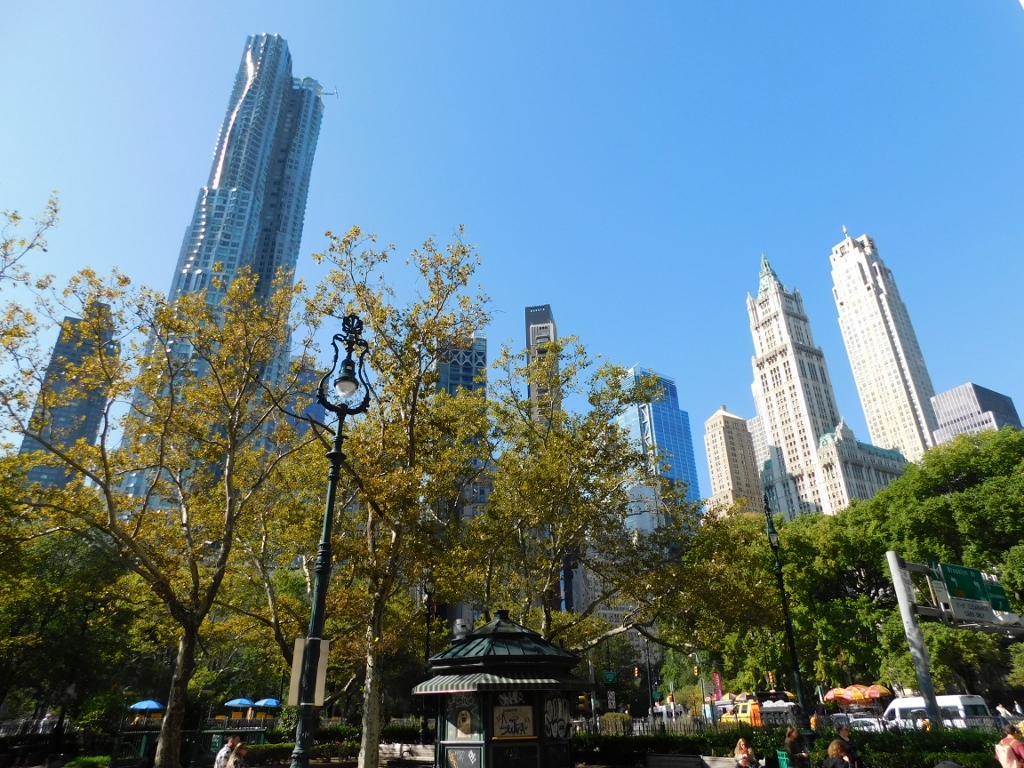 New York
New York
I got out of the underground right beside one of the important buildings in this part of the city that was originally called the Municipal Building. Now it has a far too long name, so I can’t be bothered. It was built at the beginning of the 20th century, it has 40 floors and its portico displays data that are important for New York – New Amsterdam 1624, Manhattan and New York 1664. I have already spoken about this before, but just as a reminder, the first European settlement at the south end of the island of Manhattan was called New Amsterdam, since it was founded by the Dutch, and when the English took it over the name was changed to New York.
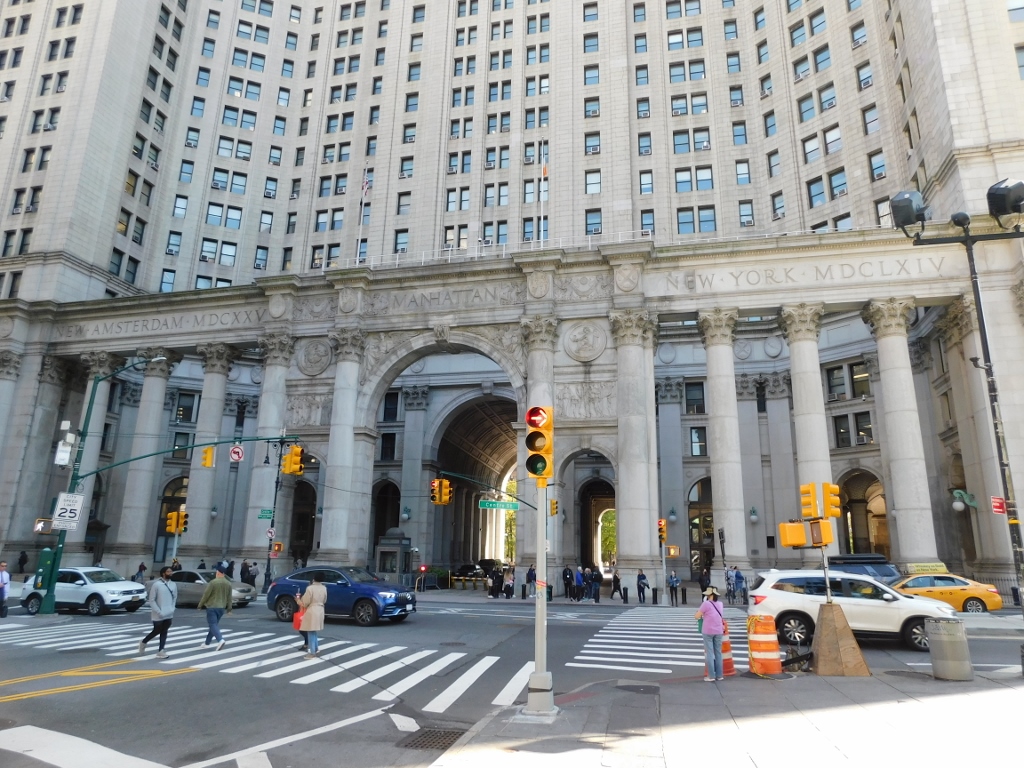 Municipal Building
Municipal Building
I could also see on the other side of the street a place where under a flanking portico there was an underground entrance/exit.
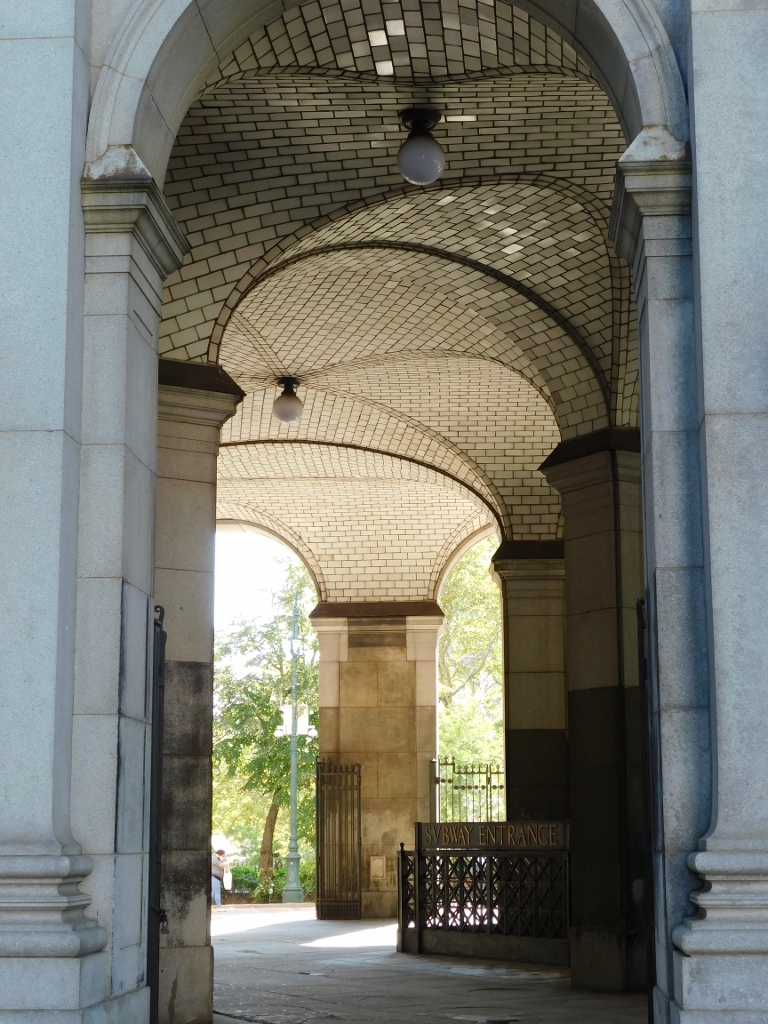 Municipal Building, a detail
Municipal Building, a detail
Then I went some hundred metres farther where there is a building also from the beginning of the 20th century. There used to be a bank here, but nowadays its imposing entrance hall has been turned into an exhibition area called the Hall des Lumières. It was right here that I could see the “Gustav Klimt: Gold in Motion” exhibition.
The exhibition actually consisted of a couple of segments and since this was a projection, it just kept rotating. I came here in the middle of the main segment, so I stayed longer in order to make sure I would see it all. To start with, I found a nice place from where I could better watch and experience the immersive art, while in the end I walked around this space a little. It will all be clearer when you look at the photos and the short video, while I can only say that the effects are truly impressive.
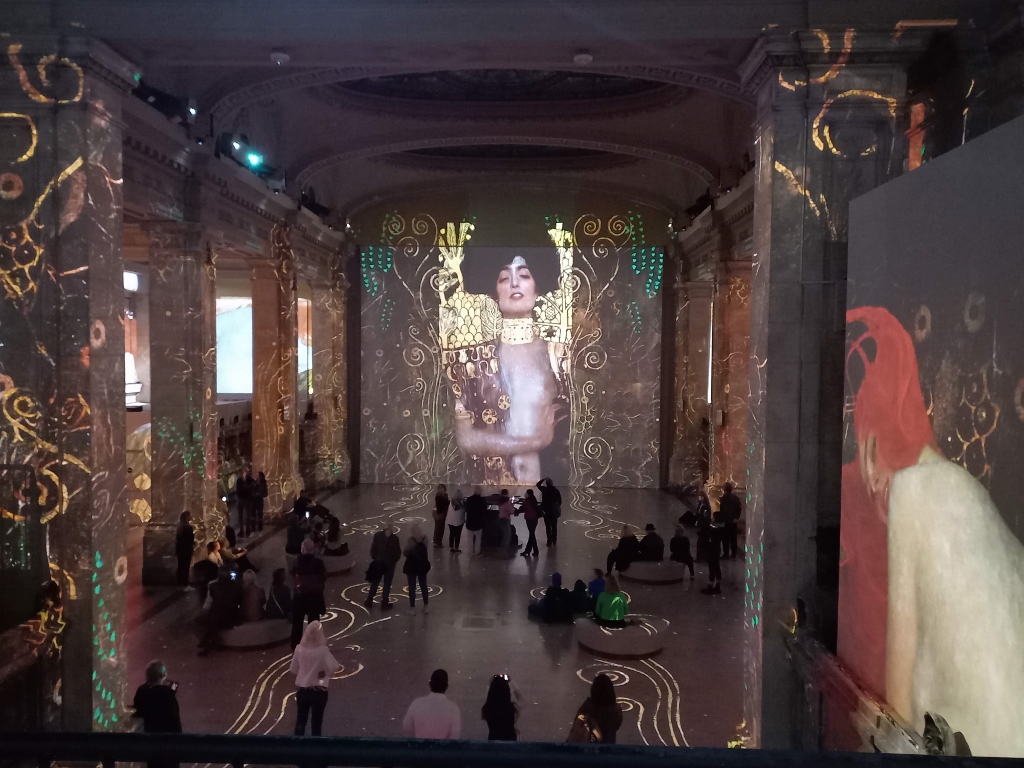 Gustav Klimt: Gold in Motion
Gustav Klimt: Gold in Motion
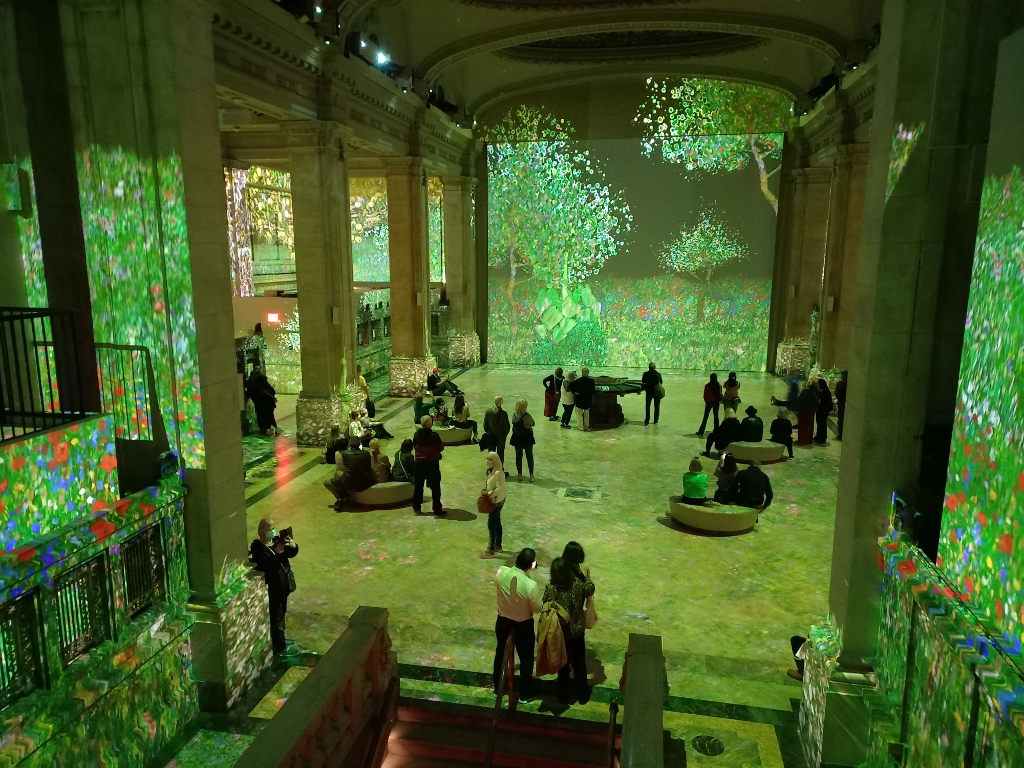 Gustav Klimt: Gold in Motion
Gustav Klimt: Gold in Motion
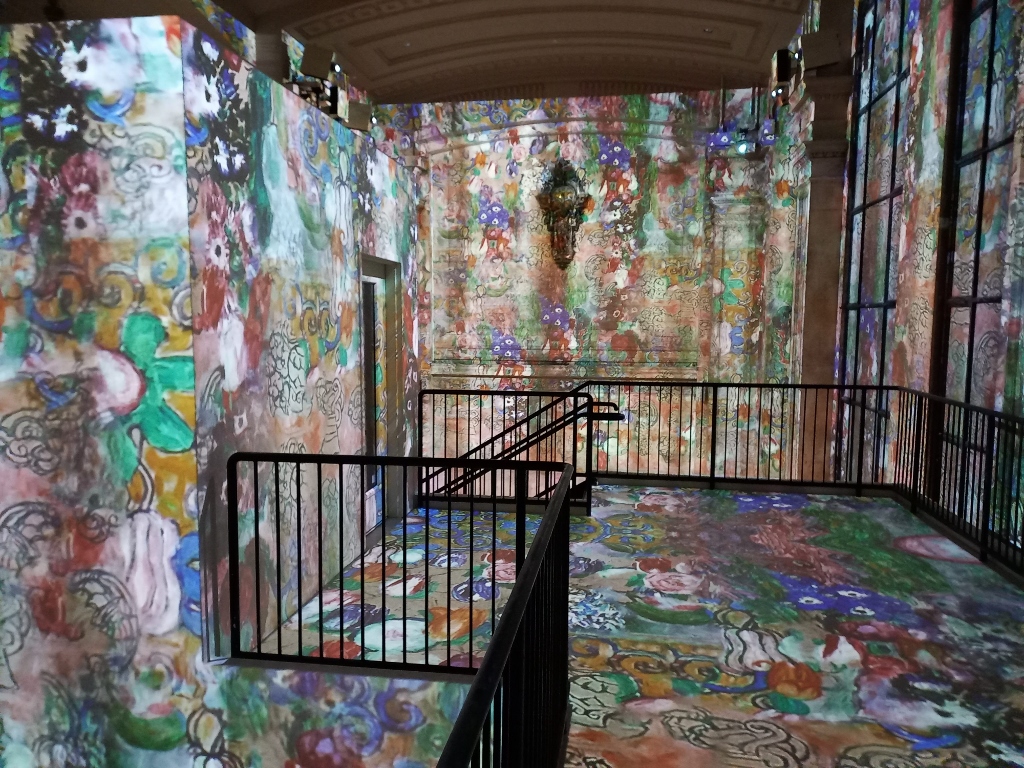 Gustav Klimt: Gold in Motion
Gustav Klimt: Gold in Motion
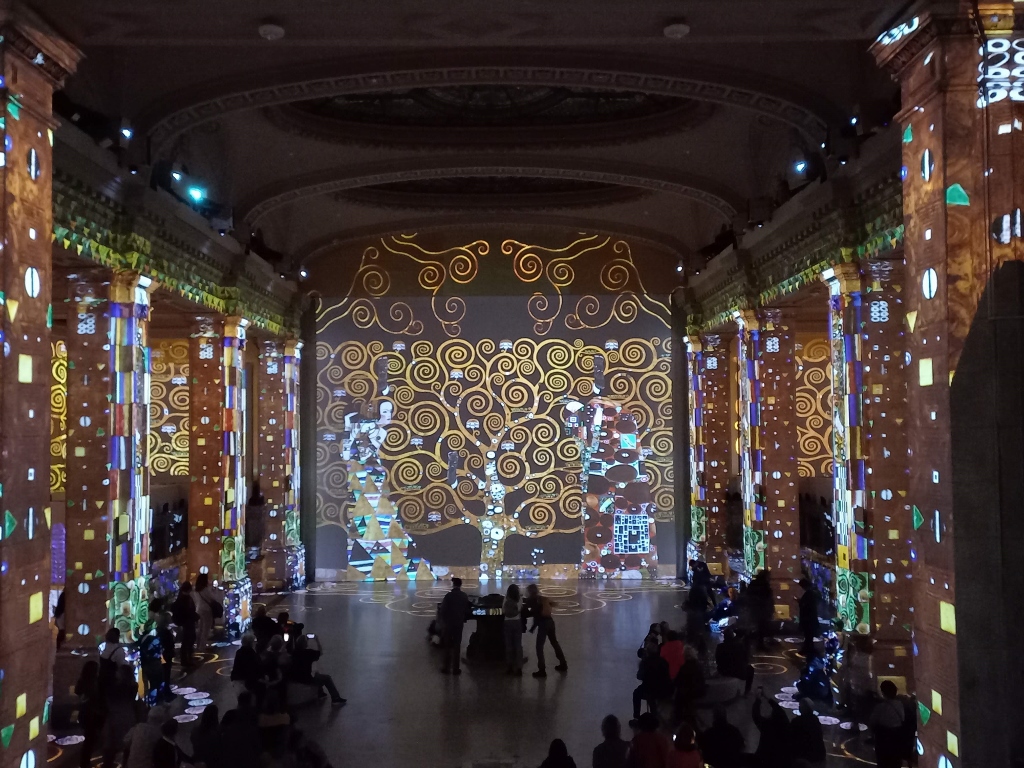 Gustav Klimt: Gold in Motion
Gustav Klimt: Gold in Motion
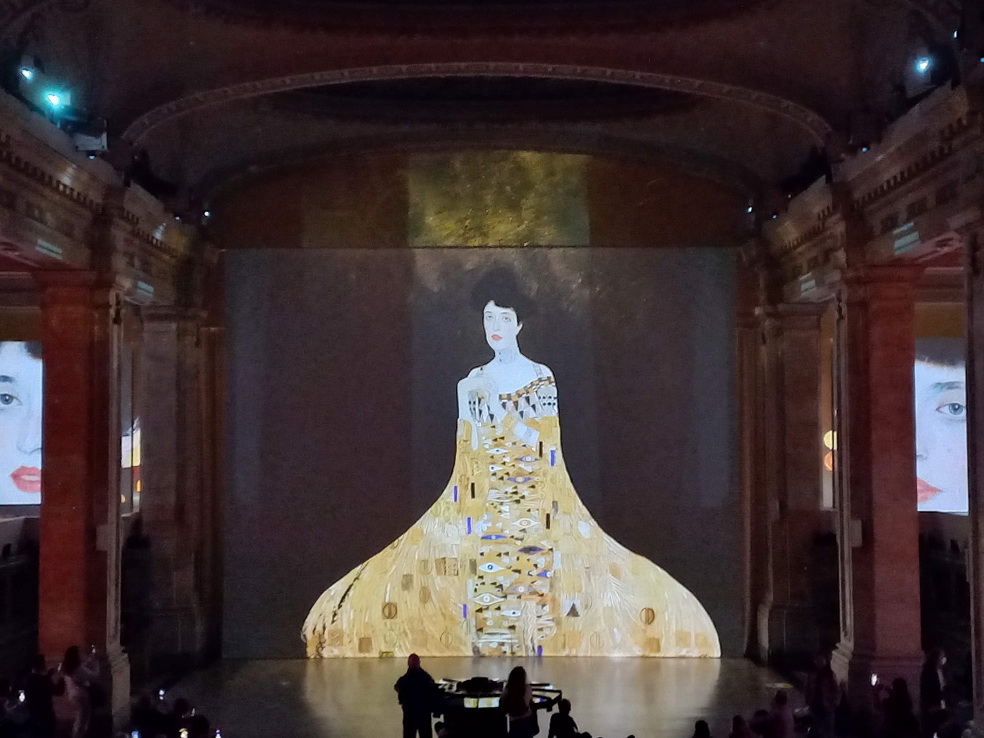 Gustav Klimt: Gold in Motion
Gustav Klimt: Gold in Motion
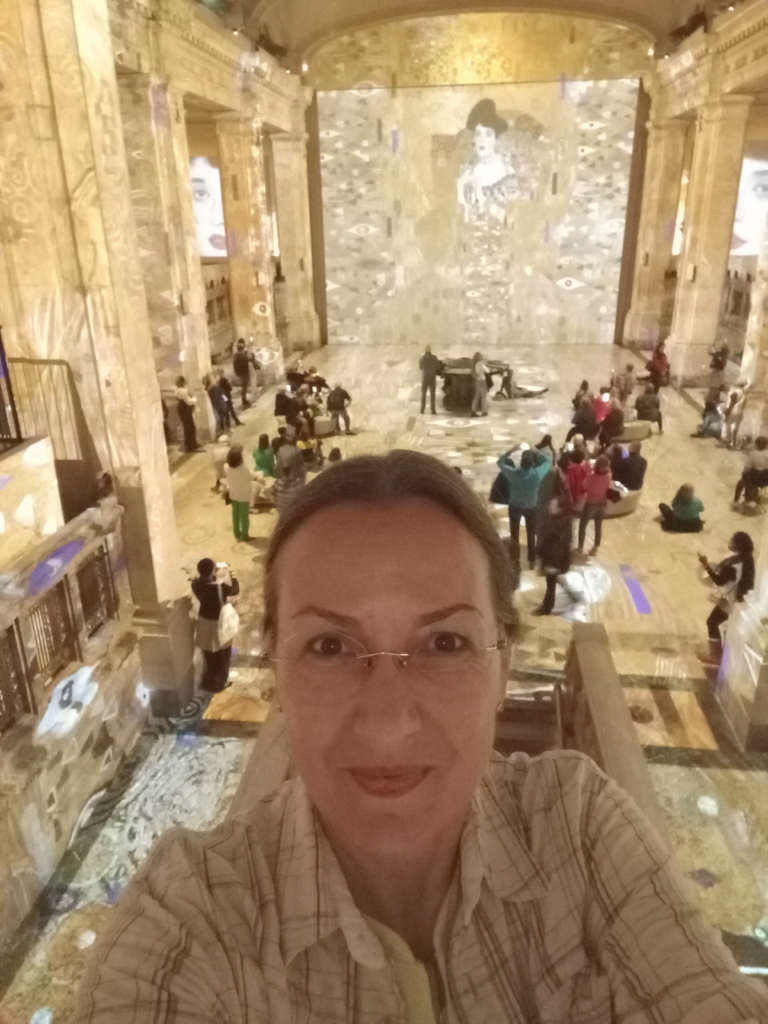 Gustav Klimt: Gold in Motion
Gustav Klimt: Gold in Motion
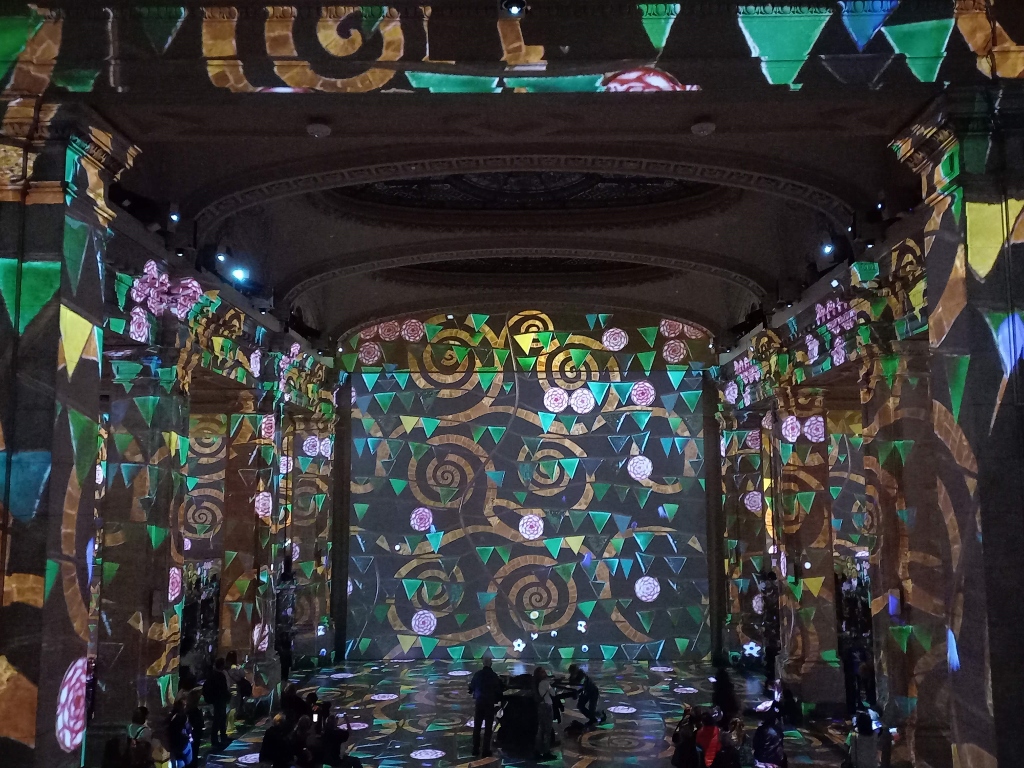 Gustav Klimt: Gold in Motion
Gustav Klimt: Gold in Motion
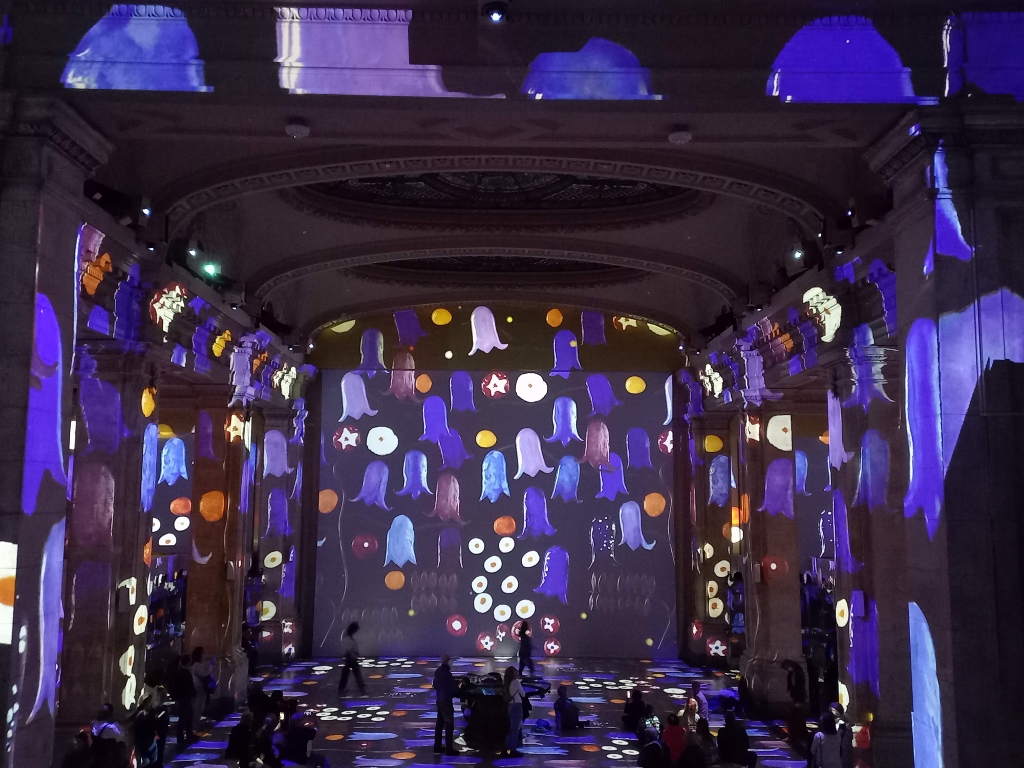 Gustav Klimt: Gold in Motion
Gustav Klimt: Gold in Motion
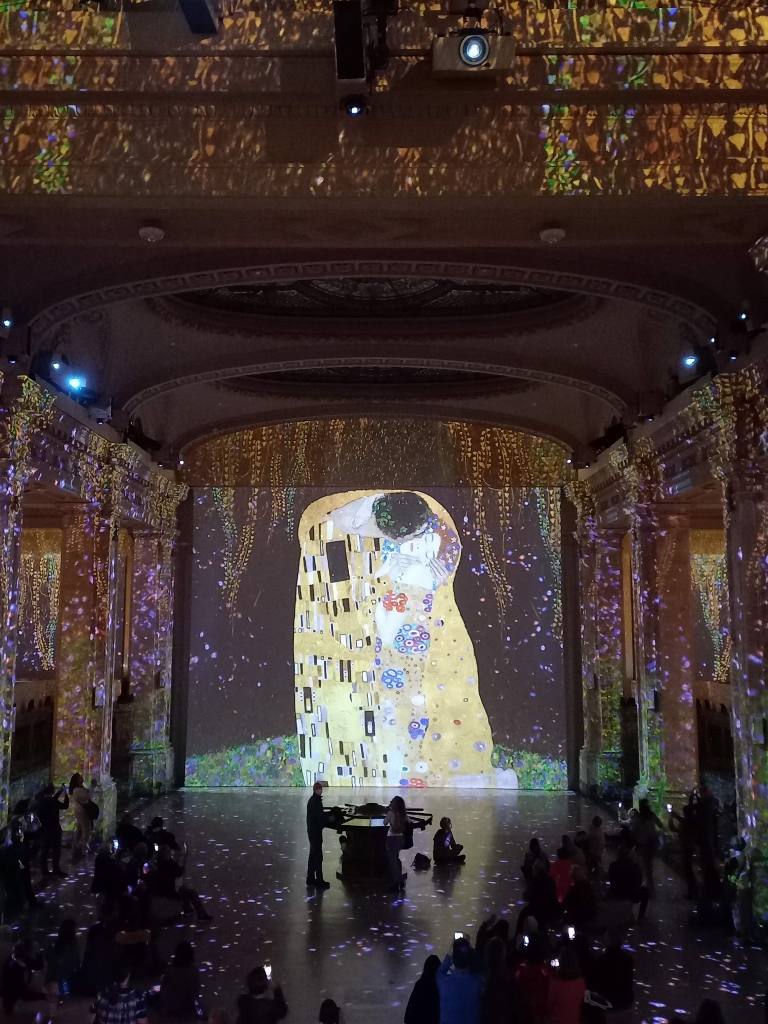 Gustav Klimt: Gold in Motion
Gustav Klimt: Gold in Motion
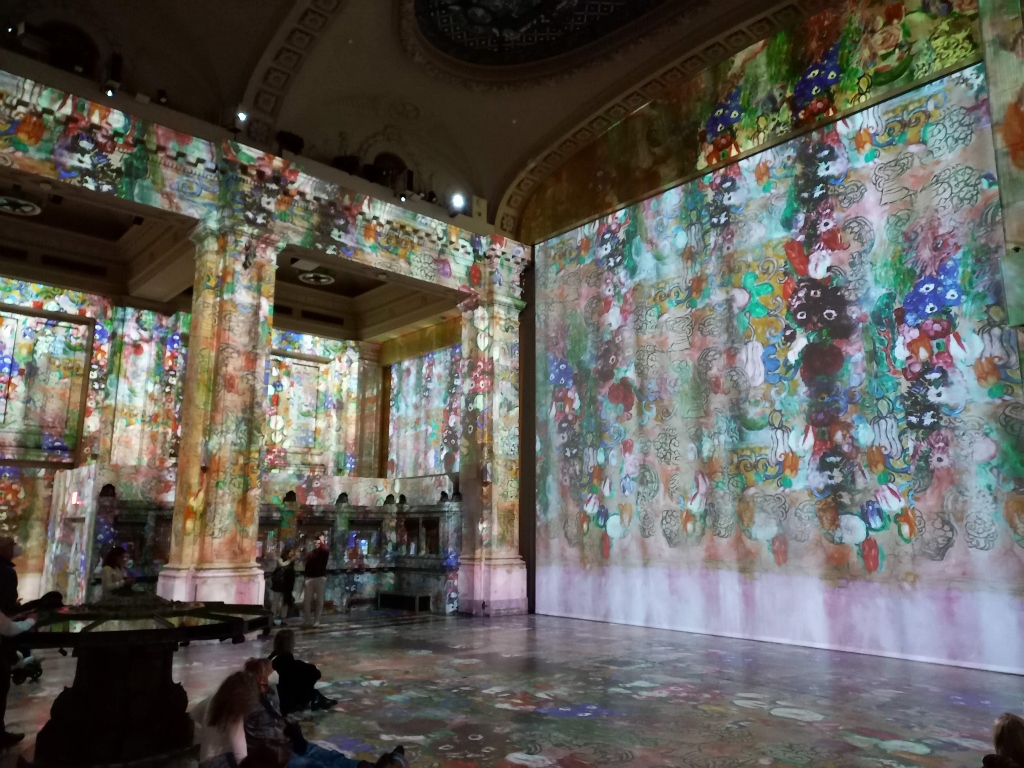 Gustav Klimt: Gold in Motion
Gustav Klimt: Gold in Motion
The digital photos of the pieces of art are projected on the floor, too, as well as on the visitors.
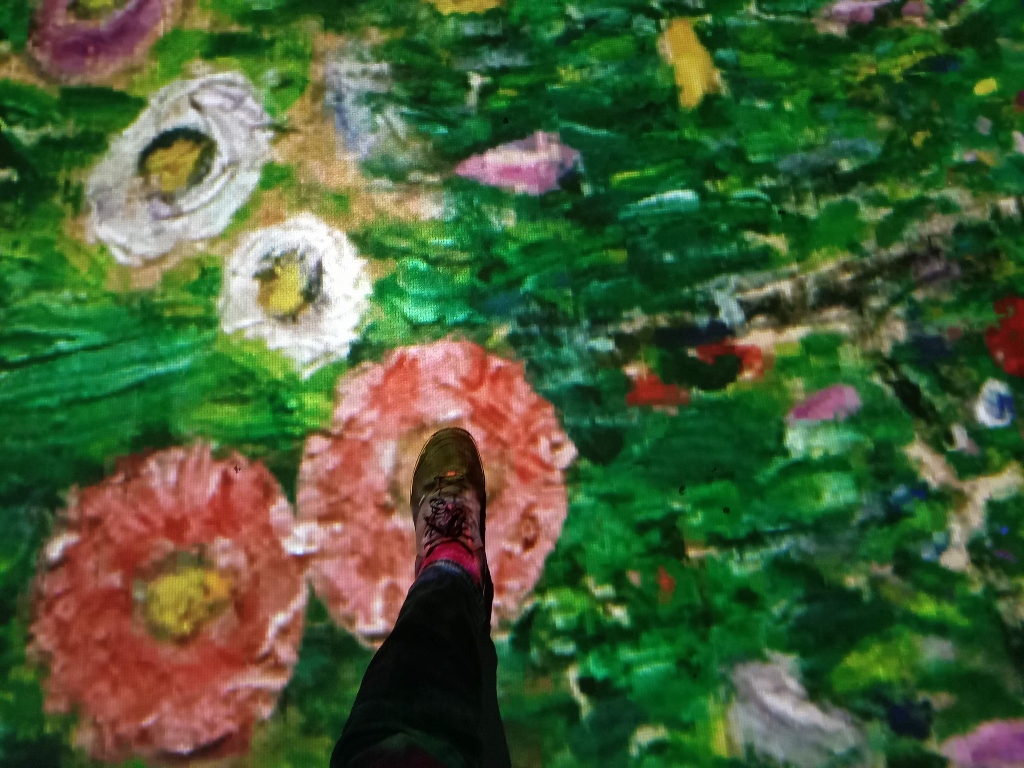 Gustav Klimt: Gold in Motion
Gustav Klimt: Gold in Motion
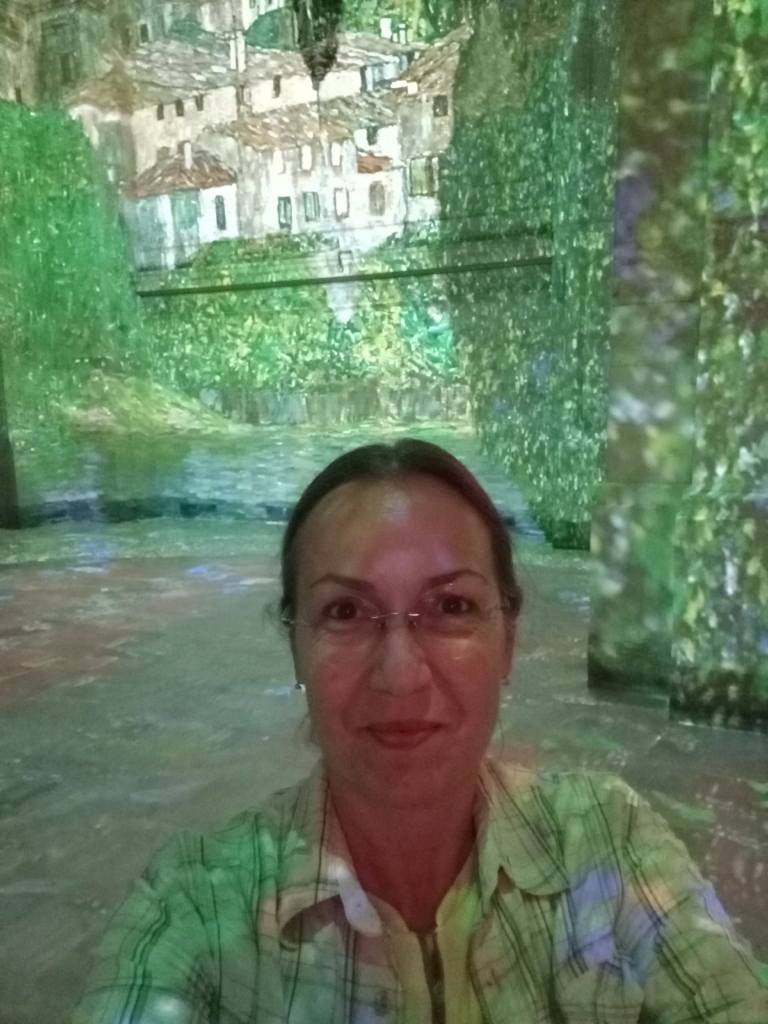 Gustav Klimt: Gold in Motion
Gustav Klimt: Gold in Motion
After this, I returned to the underground again, and here I’m thinking concretely of the subway, and thus I moved to the prestigious Upper East Side that is considered the wealthiest part of New York City. This neighbourhood is bordered by the Fifth Avenue and the Central Park from the west. Along the Fifth Avenue, in this area, there are several museums, some of which are among the most famous in the world and thus this section of the avenue is called – the Museum Mile.
During my previous stay in New York, I visited the Metropolitan Museum of Art (https://www.svudapodji.com/en/new-york-martinique-3/) that is located right along this “mile,” but at that time the Guggenheim Museum was closed. I wanted to remedy this now, but while walking from an underground station, I first passed by another museum in this area that I planned to visit and that was the Neue Galerie New York. As it turned out, it was a Tuesday and the museum is closed on Tuesdays. The same thing applied to the Guggenheim. Well, ok, I said to myself, I will come another day.
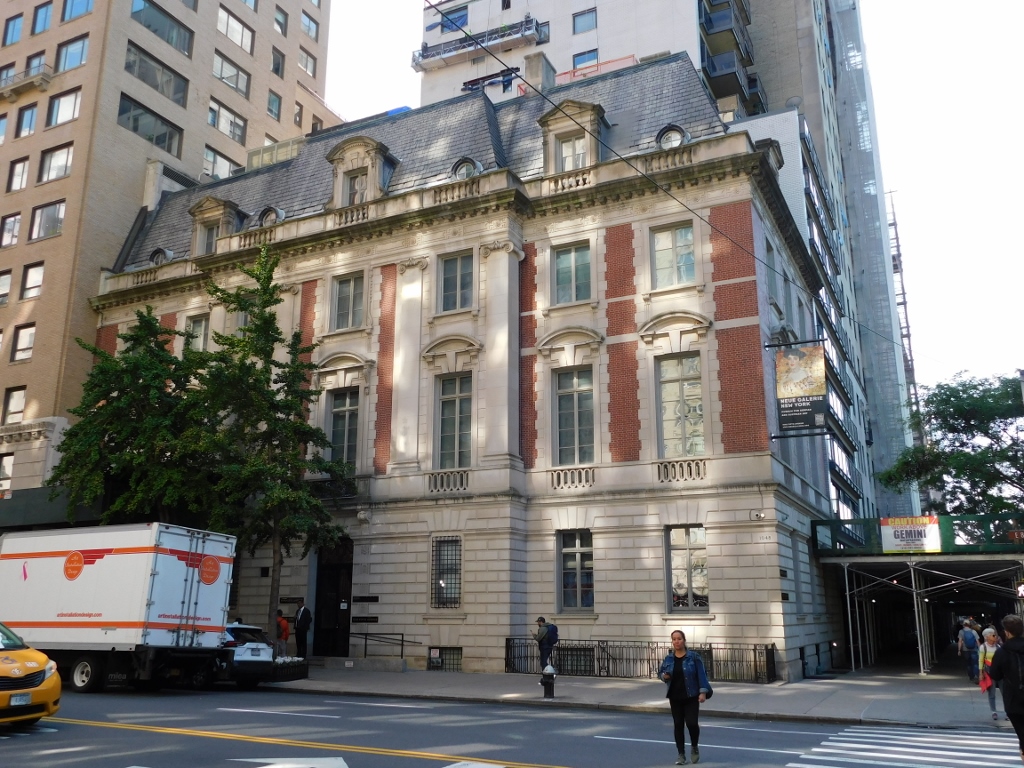 Neue Galerie New York
Neue Galerie New York
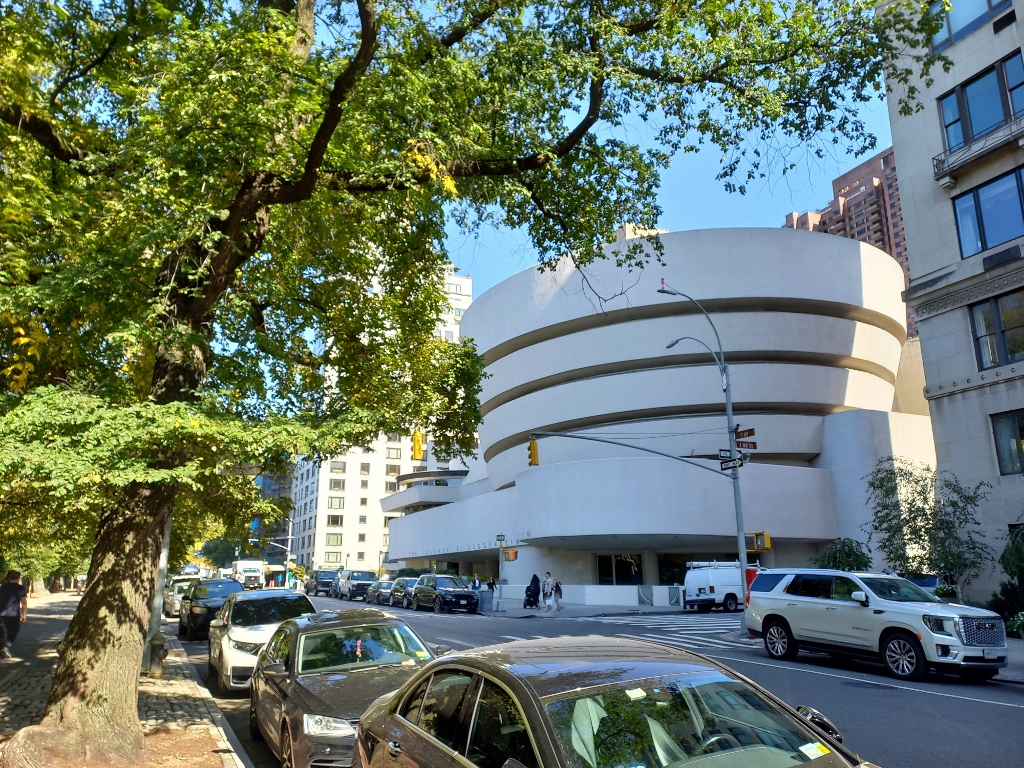 The Solomon R. Guggenheim Museum
The Solomon R. Guggenheim Museum
So, I went to the other side and there was the huge Central Park.
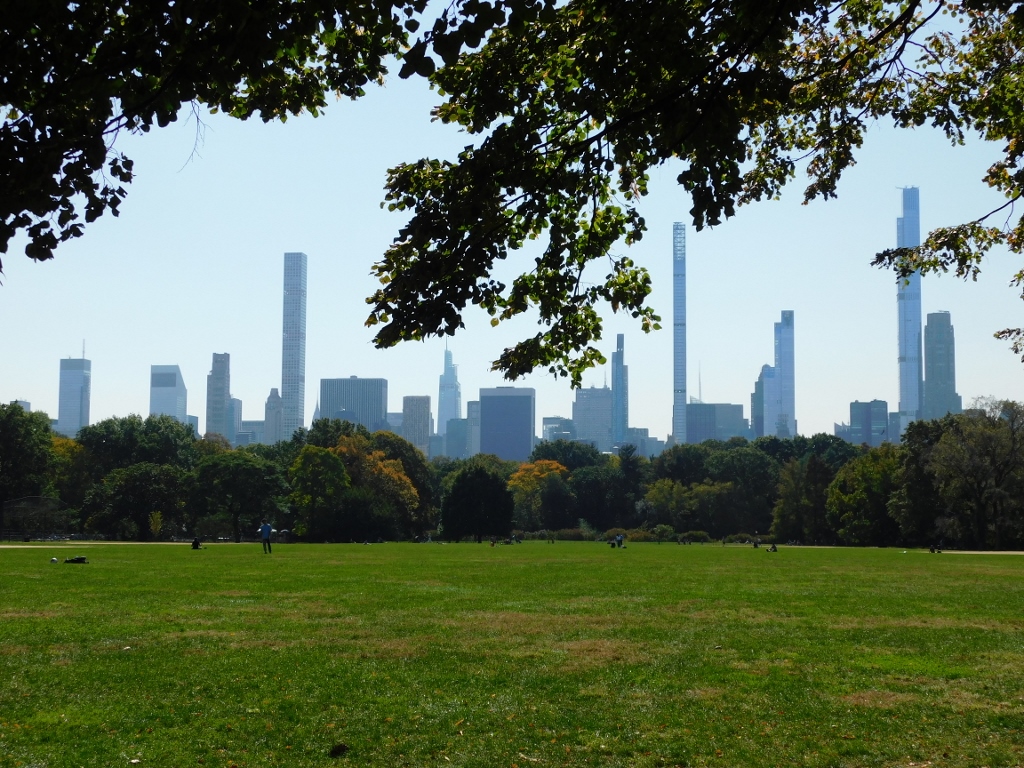 Central Park
Central Park
The Central Park got its name simply because it is situated in the middle of Manhattan. The construction of this enormous park (341 hectares) started in 1857 and it was opened to public in 1876. The park encompasses several interesting sights, including also numerous bodies of water, but my idea was just to roam around, without too much ambition.
To start with, I reached the Turtle Pond. The name was corroborated by some small turtles that I could see floating here, but I left the taking of photos for later.
 Central Park, a detail
Central Park, a detail
Nearby, however, I came across a grey catbird (Dumetella carolinensis) and since this was a small bird that unlike turtles is fast and prone to flying all over the place, I had to take a photo of it at once.
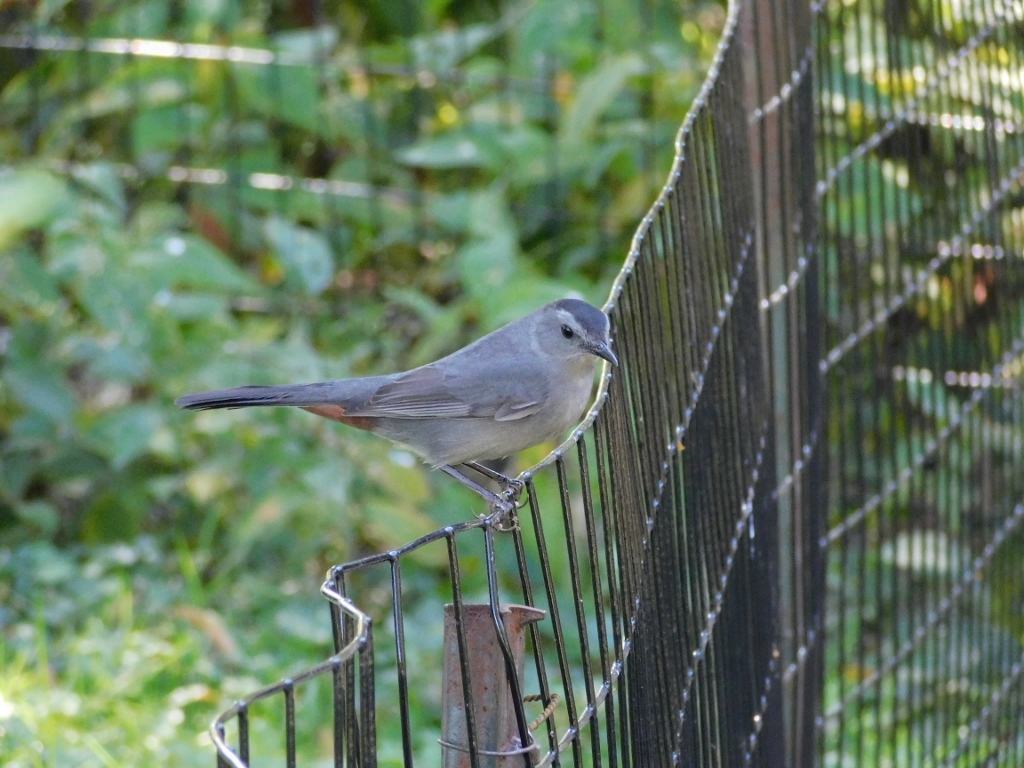 Grey catbird
Grey catbird
Soon I reached The Lake and there, from a couple of spots I took photos of the skyscrapers of Midtown, the middle part of Manhattan.
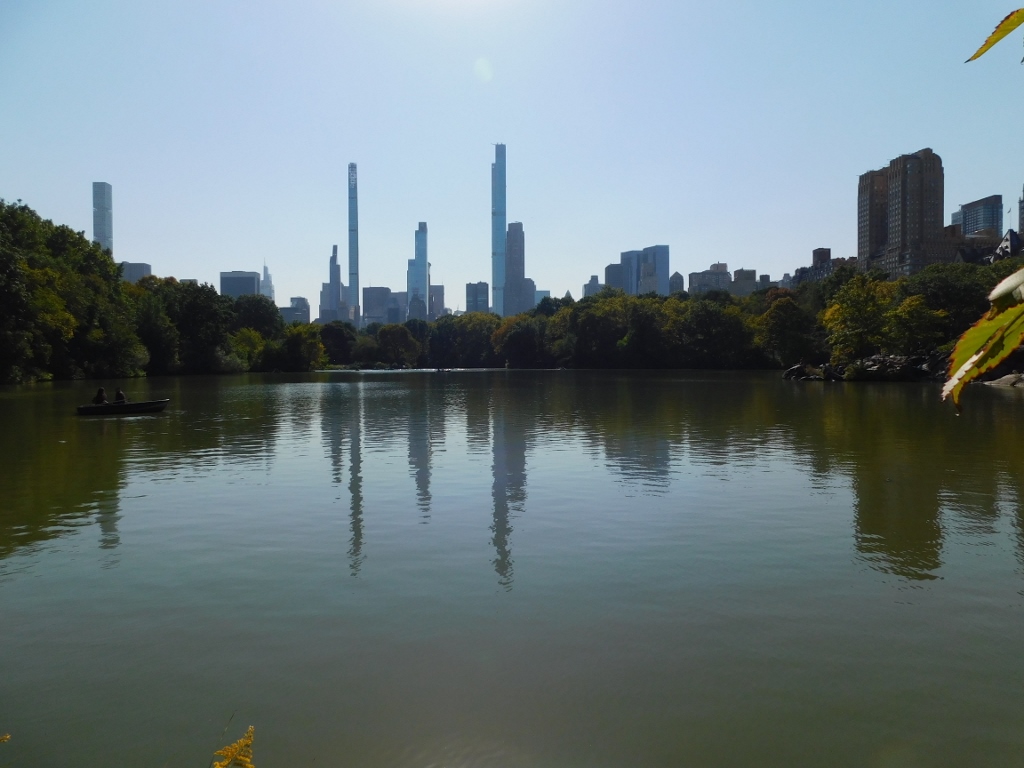 Central Park, a detail
Central Park, a detail
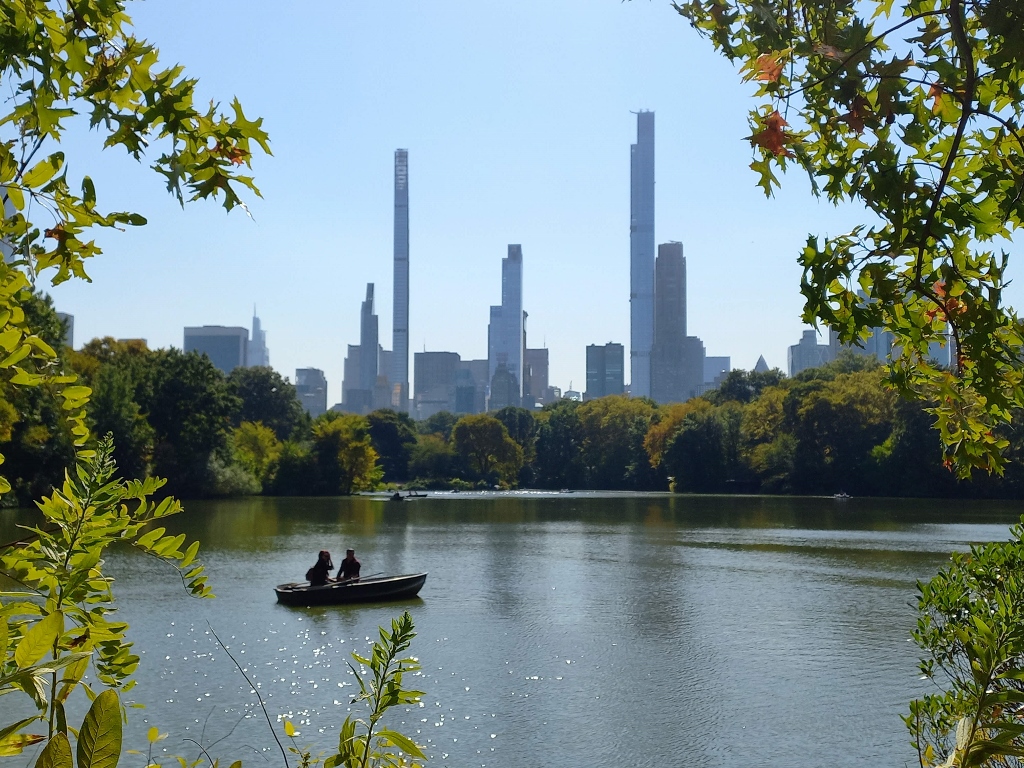 Central Park, a detail
Central Park, a detail
You can see some other parts of Manhattan from here as well, but I also spotted several small turtles that enjoyed the sun here.
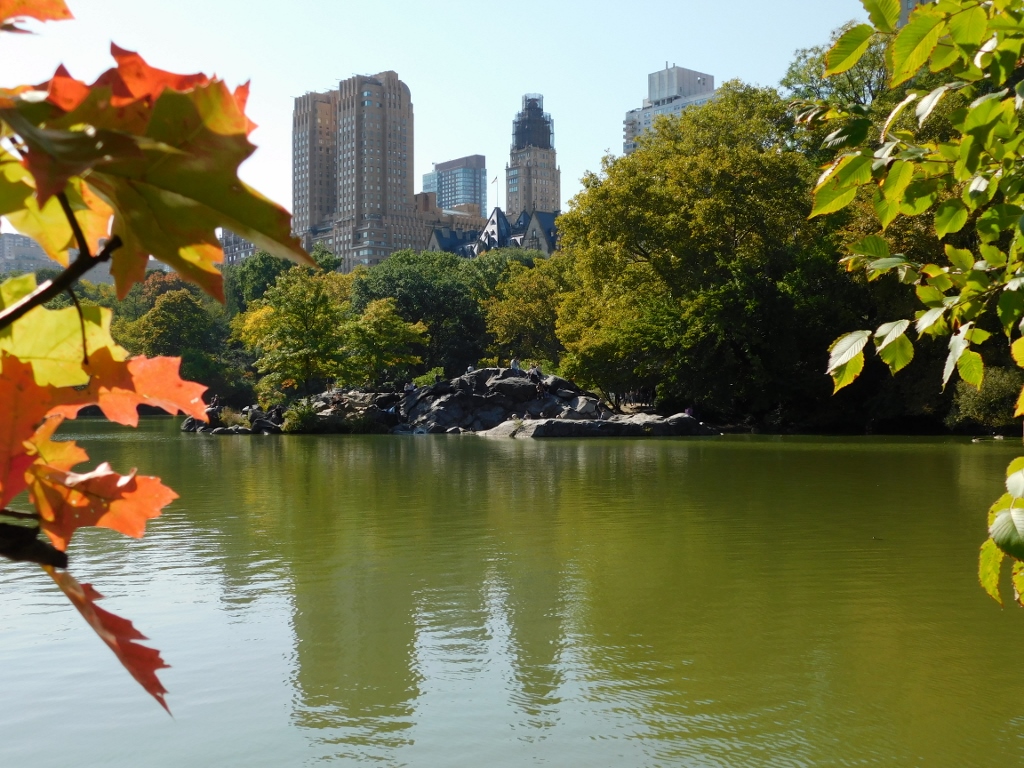 Central Park, a detail
Central Park, a detail
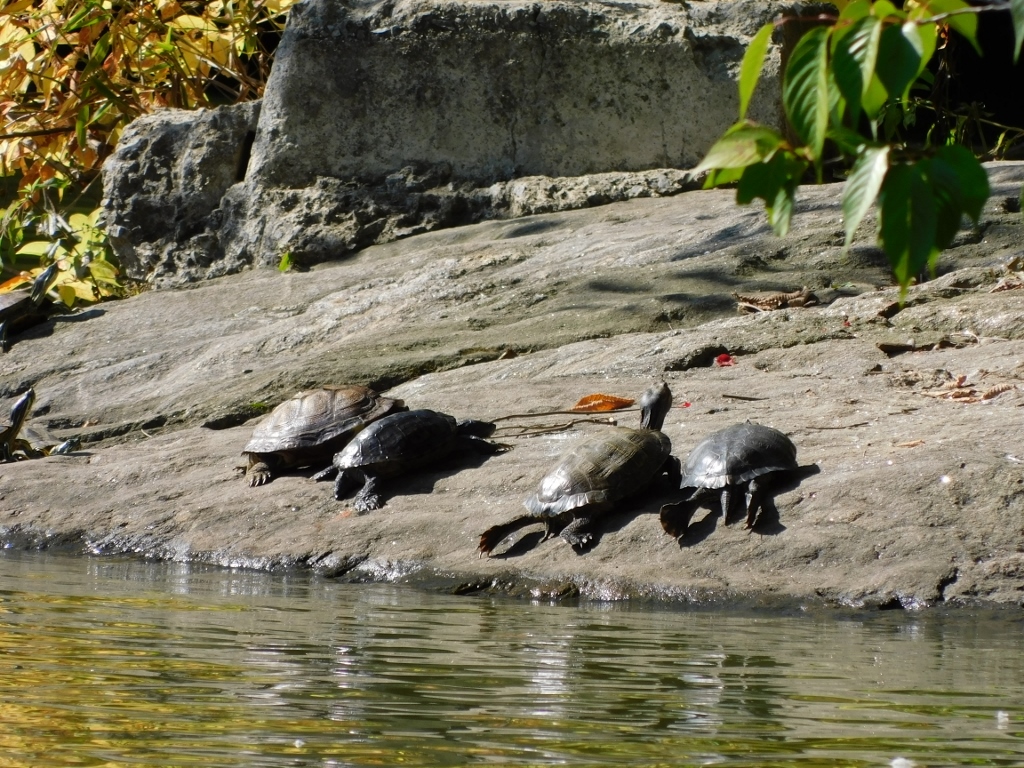 Central Park, a detail
Central Park, a detail
While I was lingered in order to take photos of some details, I heard a couple of young people speaking Serbian. I greeted them and then we chatted a little. As it turned out, they were a part of the Air Serbia crew and thus they were in New York for a couple of days. I did not want to take away their precious time, so we soon parted.
After this I walked to the Bow Bridge named like this because its shape is reminiscent of an archer’s bow and then I walked over it as well.
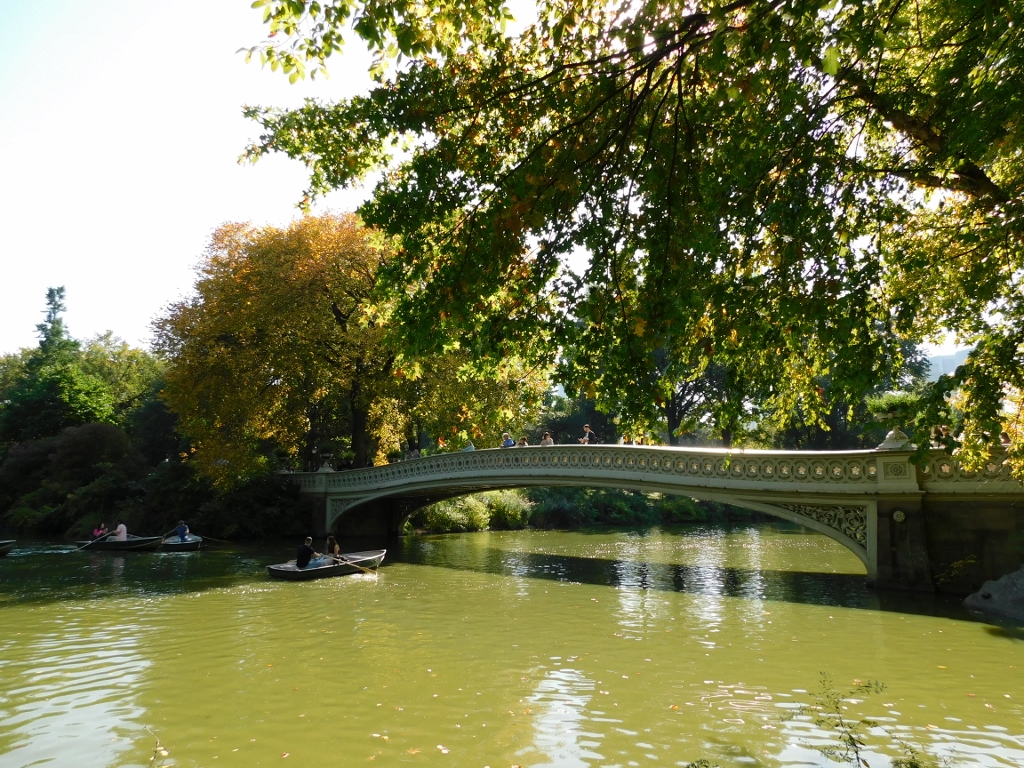 Central Park, a detail
Central Park, a detail
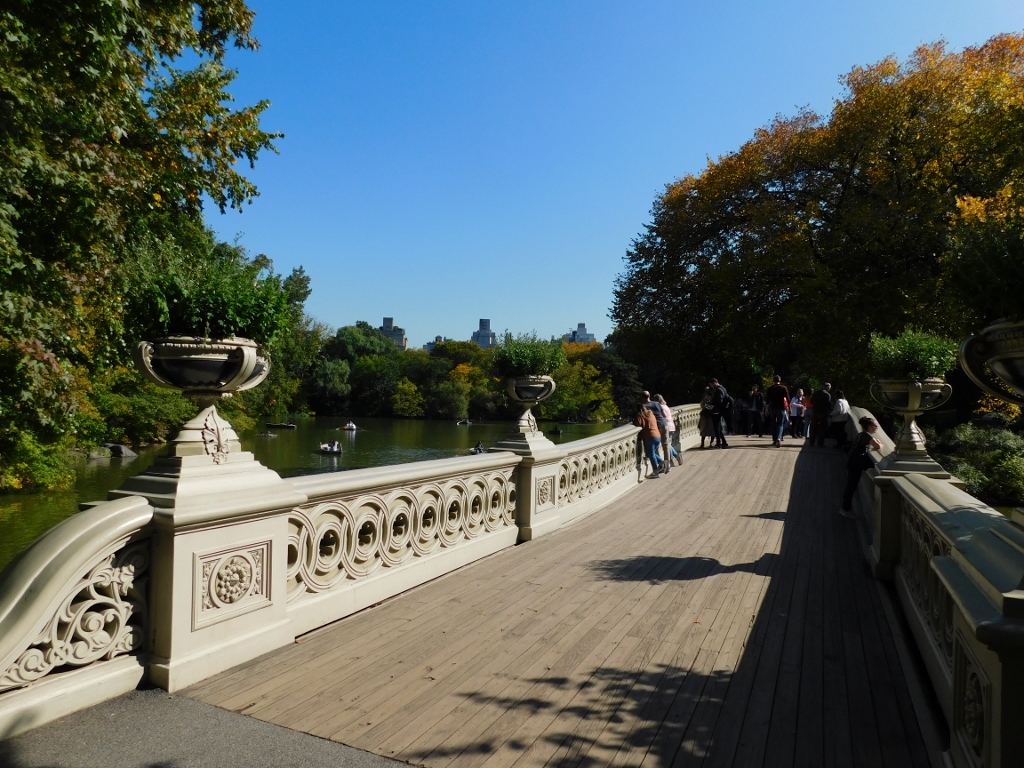 Central Park, a detail
Central Park, a detail
While walking beside The Lake, I enjoyed the views both at the lake itself and at it surroundings, as well as at a couple of Canada geese (Branta canadensis) that were contentedly plucking the local vegetation.
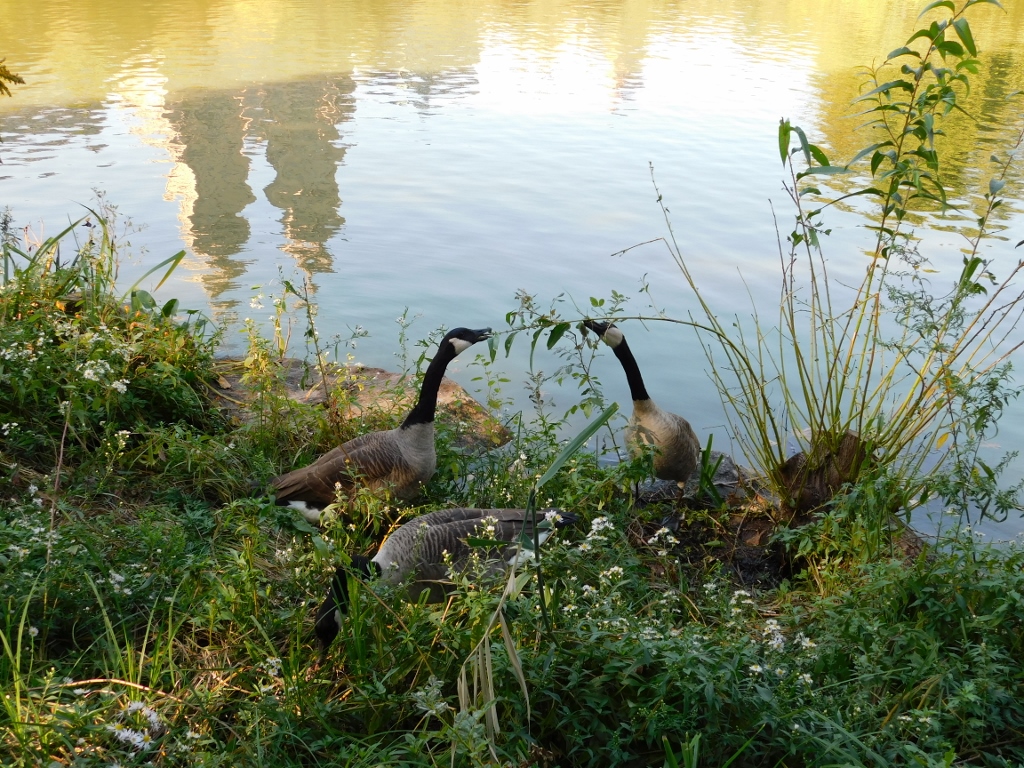 Central Park, a detail
Central Park, a detail
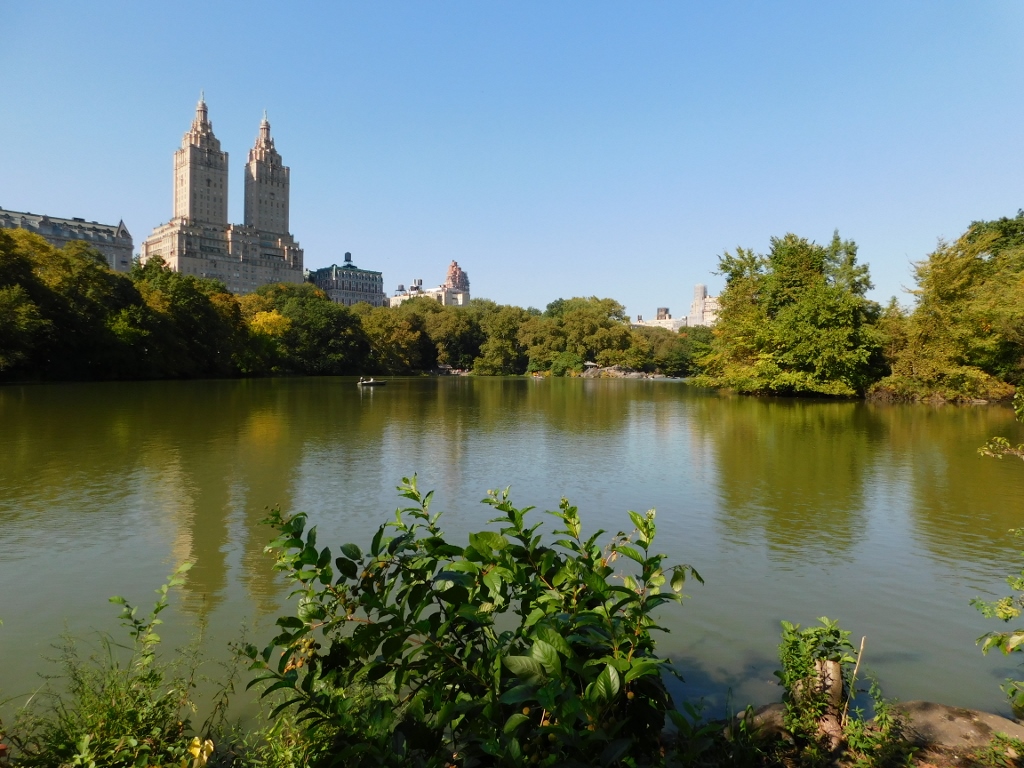 Central Park, a detail
Central Park, a detail
In continuation, I headed for the west side of the park, just a couple of hundred metres from The Dakota building in which John Lennon (1940-1980) lived and in front of which he was killed. Five years after his tragic death, a part of the Central Park right across The Dakota was restored as a Garden of Peace and was called the Strawberry Fields, after a famous Beatles song. Today, there is a plaque with the names of the countries that supported this project from 1985. I was glad to see, among others, the name of Yugoslavia. That was the country in which I was born.
In addition, the plaque displays a verse of the (also) famous song by John Lennon, Imagine: “Imagine all the people living life in peace...” The title of this song can also be seen within a mosaic that was installed at a crossroad of a few walking paths. It was very crowded here when I arrived since everybody, just like me, wanted to take photos of the place or to have their photo taken. I could barely manage to take a photo of the mosaic when only a couple of people were standing on it.
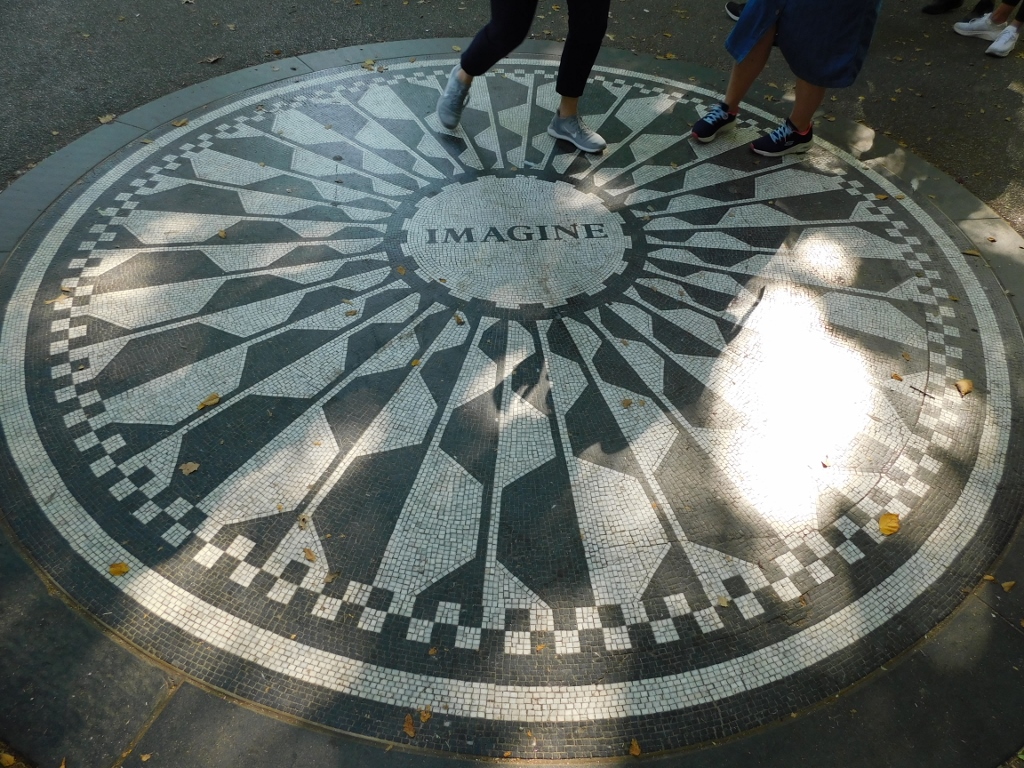 Central Park, a detail
Central Park, a detail
By the way, a renowned Serbian-American scientist, Mihajlo Pupin (1854-1935), also used to live in the famous Dakota building. I will say a little more about him in one of the subsequent sequels of this travelogue.
Following this short stay at the mosaic dedicated to John Lennon, I started to return towards the centre of the park. The day was beautiful and there were a lot of people walking around the park, with some of them taking proper coaches as well.
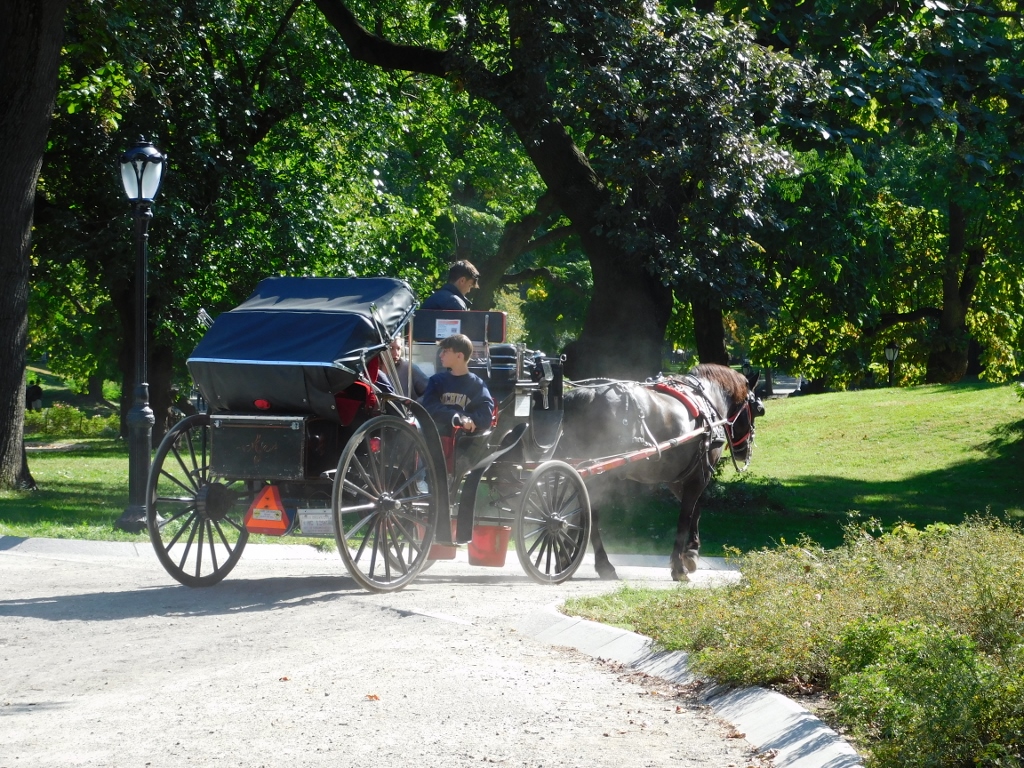 Central Park, a detail
Central Park, a detail
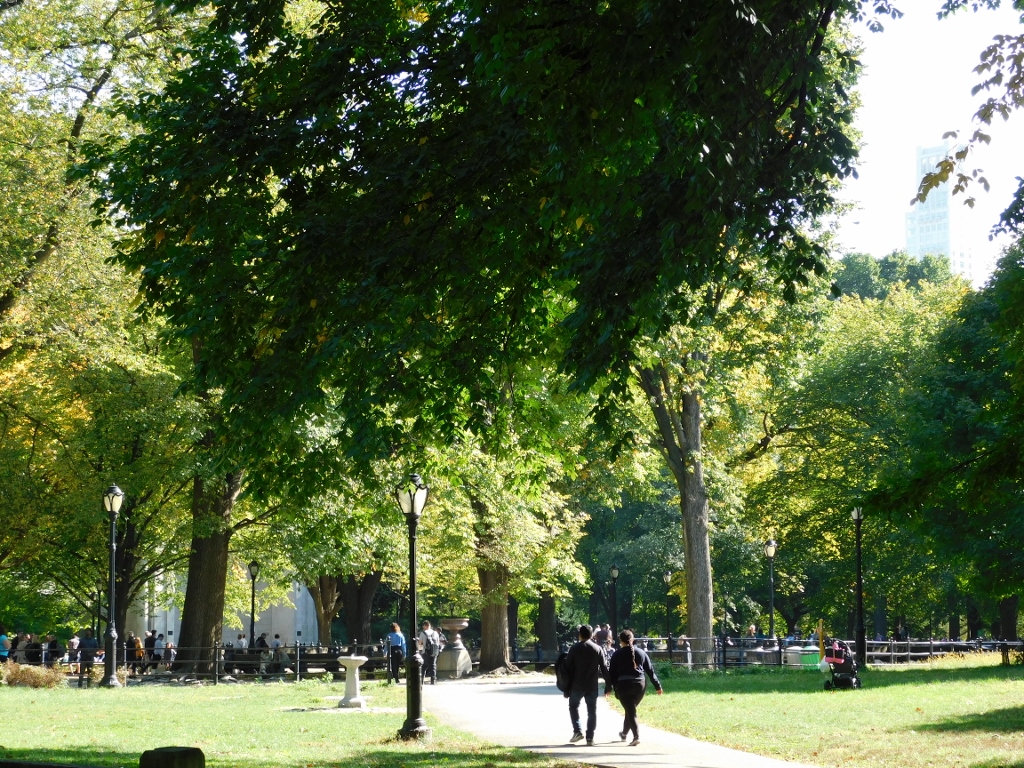 Central Park, a detail
Central Park, a detail
The next destination were the Bethesda Terrace and Fountain that are located near the south side of The Lake.
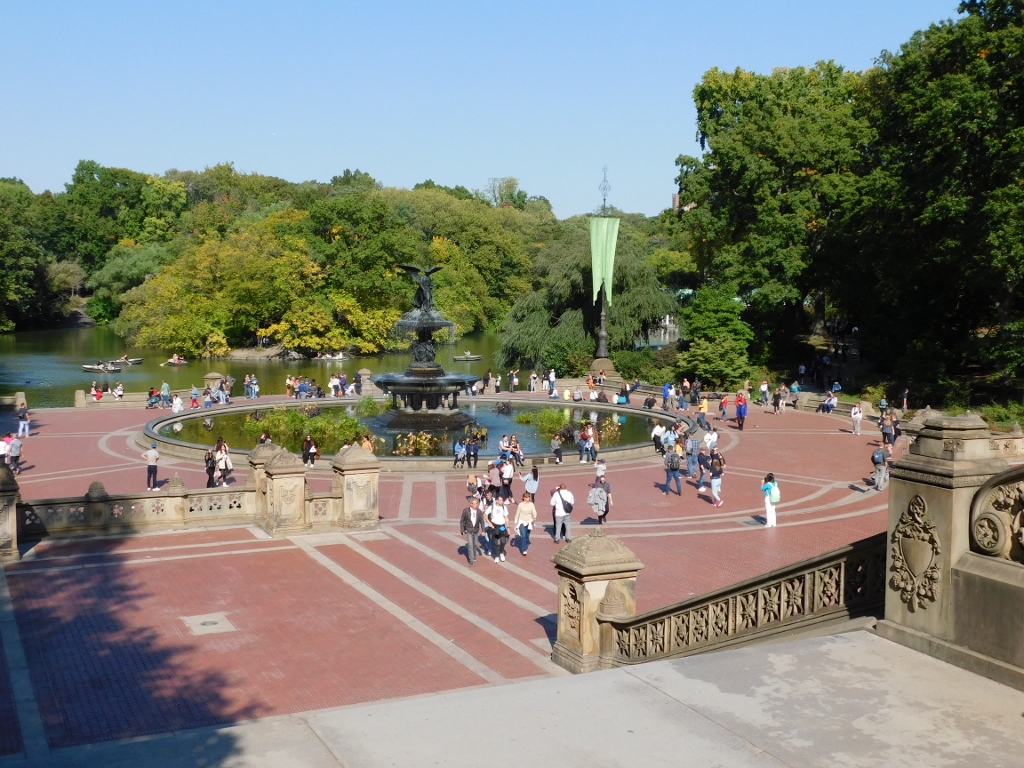 Bethesda Terrace and Fountain
Bethesda Terrace and Fountain
The terrace that was first made was simply called The Water Terrace, but when the fountain with an angel on its top was installed, everything was renamed Bethesda after the Biblical pool in Jerusalem where apparently Jesus healed a paralysed man.
First I reached the upper part of the terrace from where there is a fine view, so I wanted to take a selfie there, but then I went down to the lower part of the terrace and closer to the fountain.
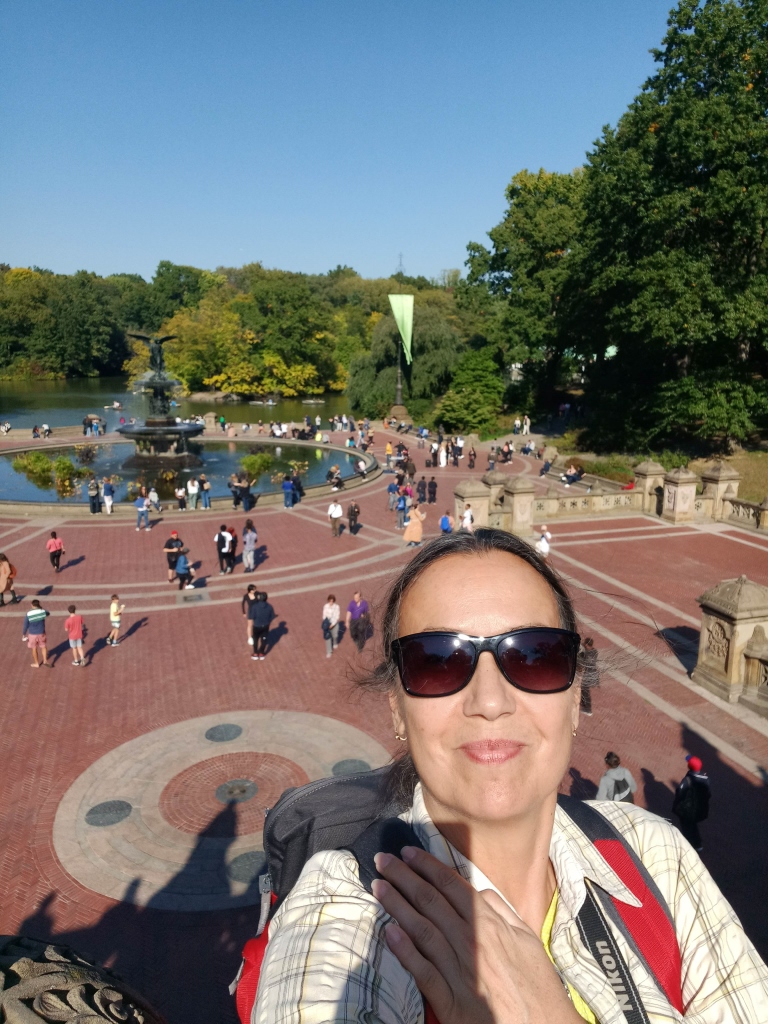 At the Bethesda Terrace
At the Bethesda Terrace
As for the fountain, it is formally called The Angel of Waters and it was installed approximately in the centre of the terrace.
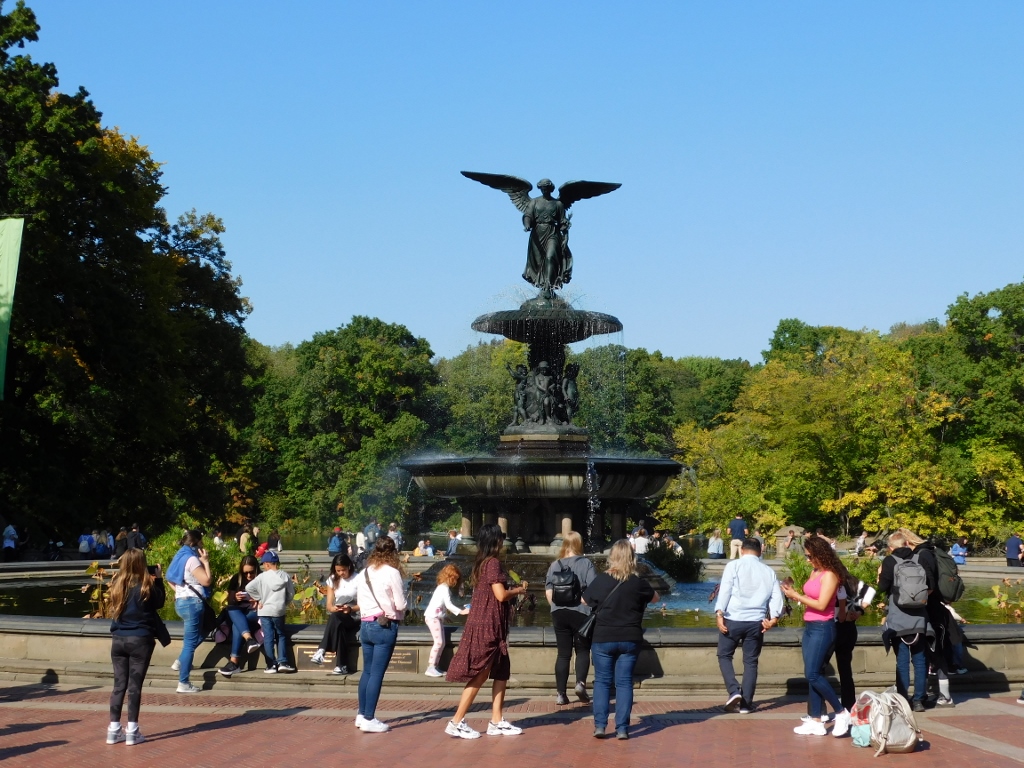 Bethesda Terrace and Fountain
Bethesda Terrace and Fountain
Under the upper part of the terrace, there is a passage that leads to the main path heading towards the south section of the park.
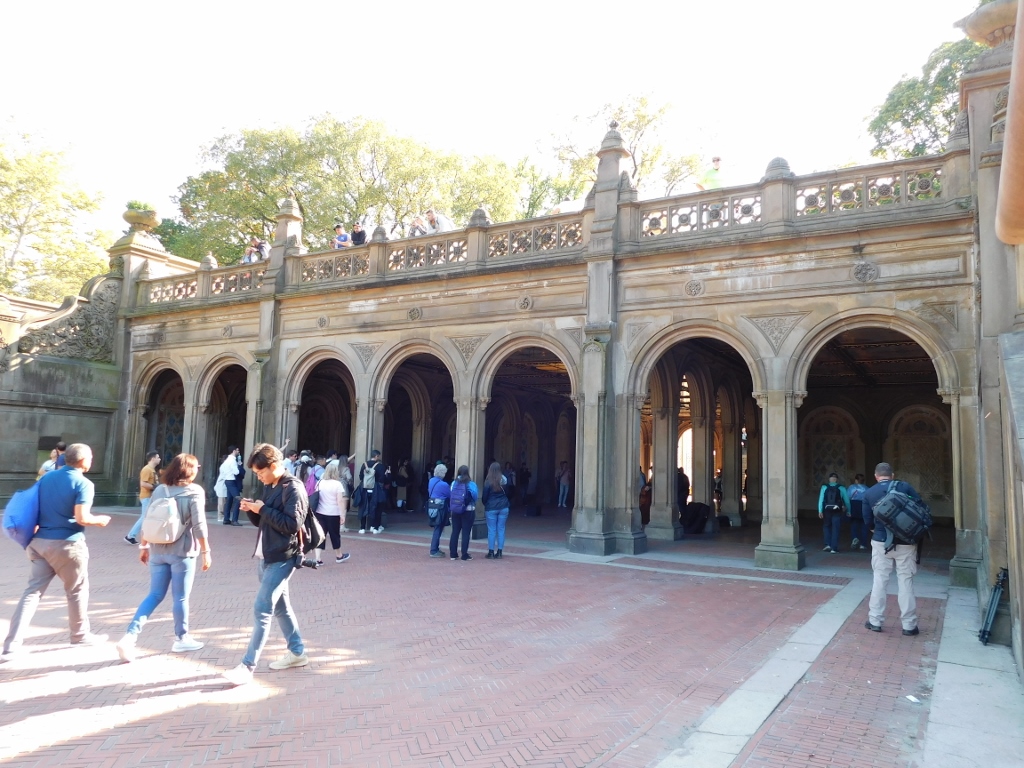 Central Park, a detail
Central Park, a detail
When I was passing through here, there was a fantastic band having their informal concert. Here is a short video:
I continued with my walk following the wide path that leads through a rather green section of the park and, in addition to the visitors, I also saw some permanent residents here.
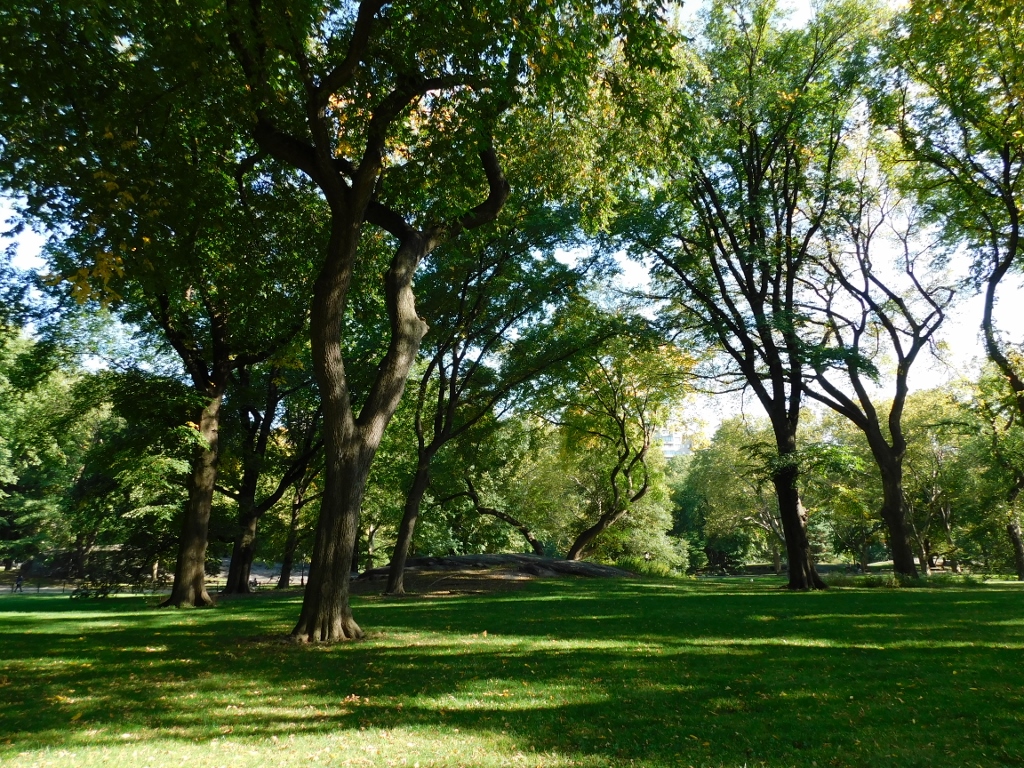 Central Park, a detail
Central Park, a detail
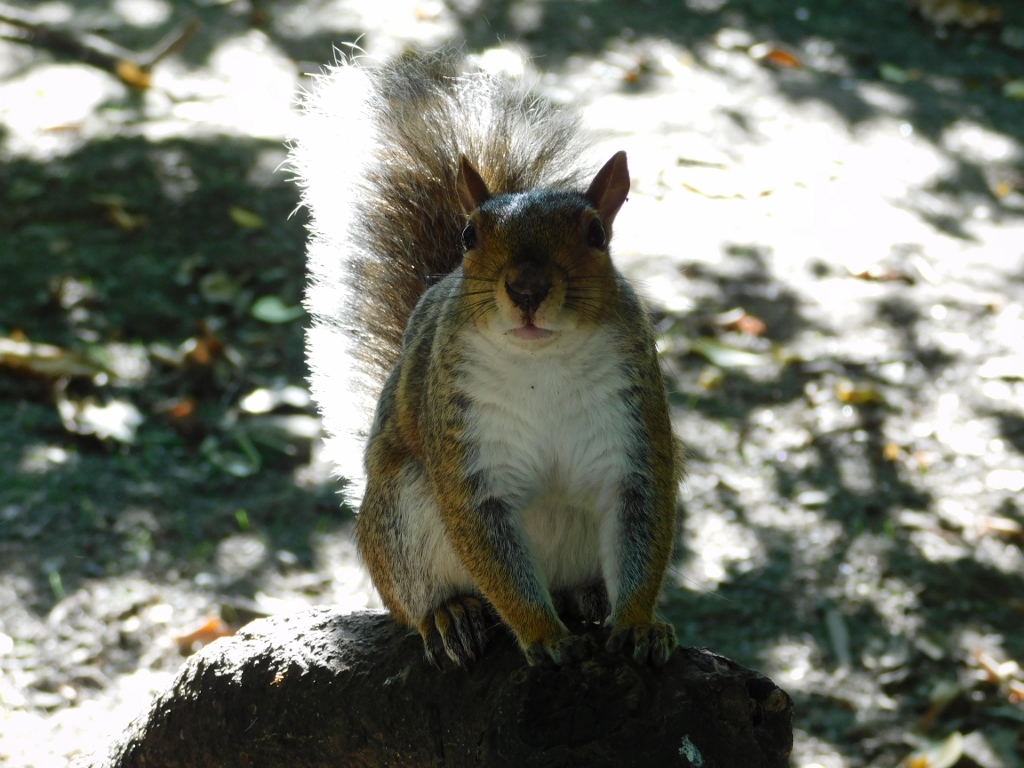 Central Park, a detail
Central Park, a detail
You can probably walk around the Central Park for days, since there are so many paths and also so many places that are interesting to be seen or places where you can sit down and just look at the surroundings.
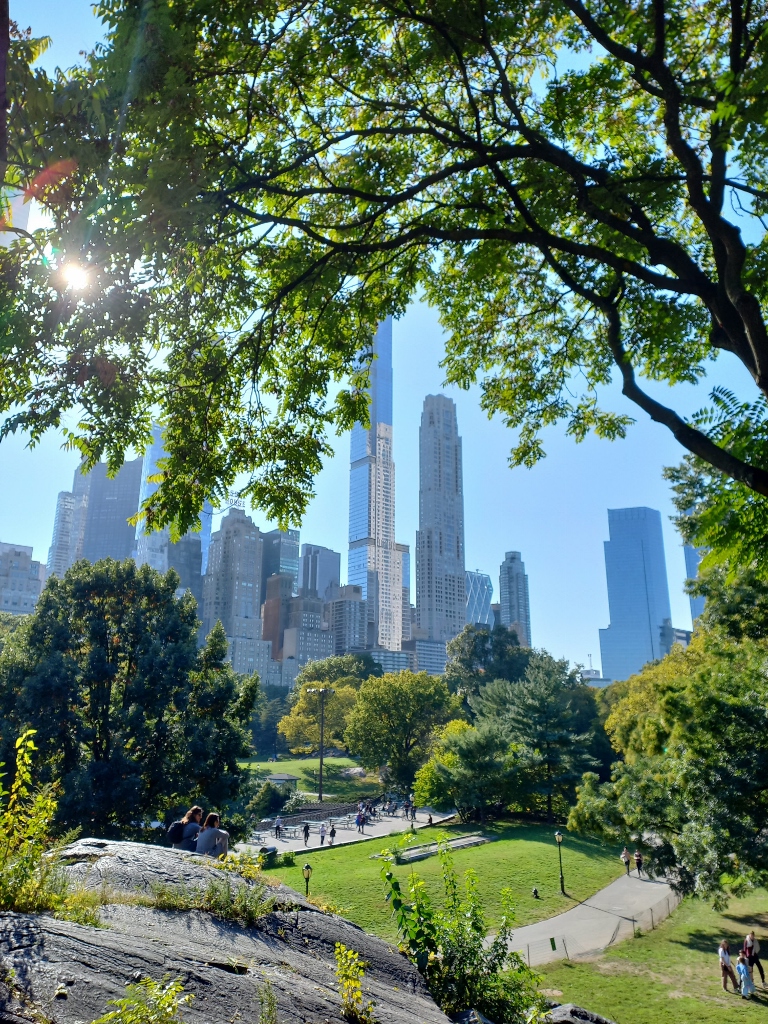 Central Park, a detail
Central Park, a detail
Although it seems to me that the construction plots in New York City have been filled out a long time ago, this is not accurate at all. Every time I come here I can see some completely new buildings. But, there is certainly a lack of space and it is now popular, and the only thing feasible, to build exceptionally thin and very high skyscrapers.
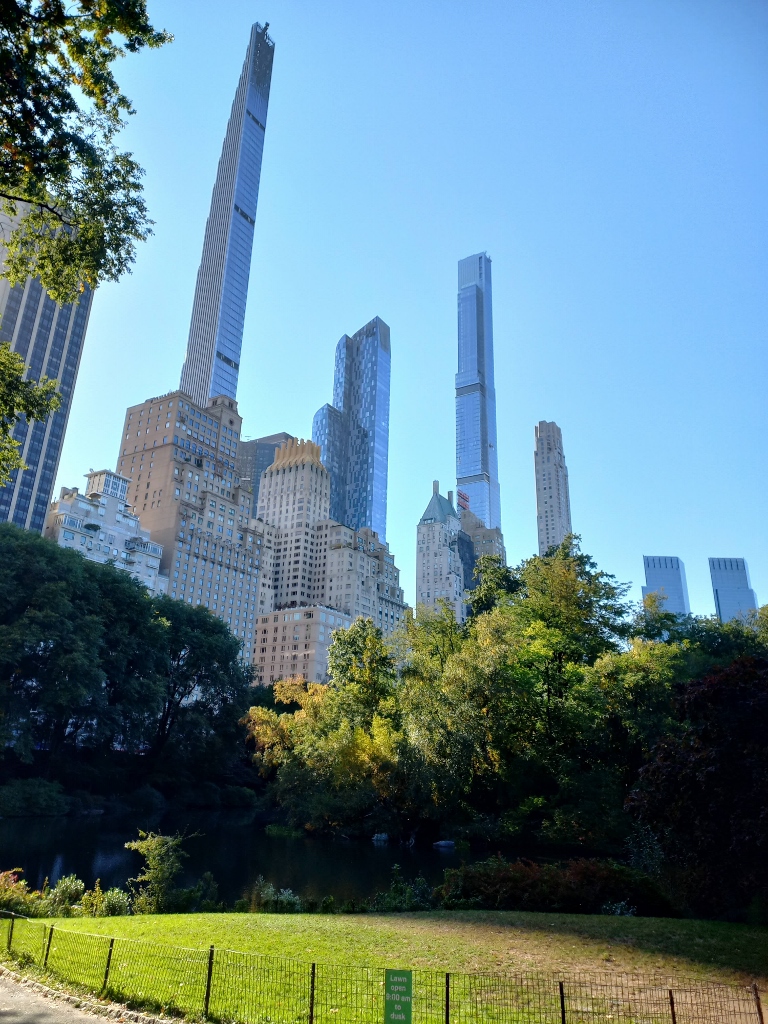 New York and a mixture of buildings from different time periods
New York and a mixture of buildings from different time periods
As for the Central Park, I came across yet another pond close to the south end of the park and it is simply called – The Pond.
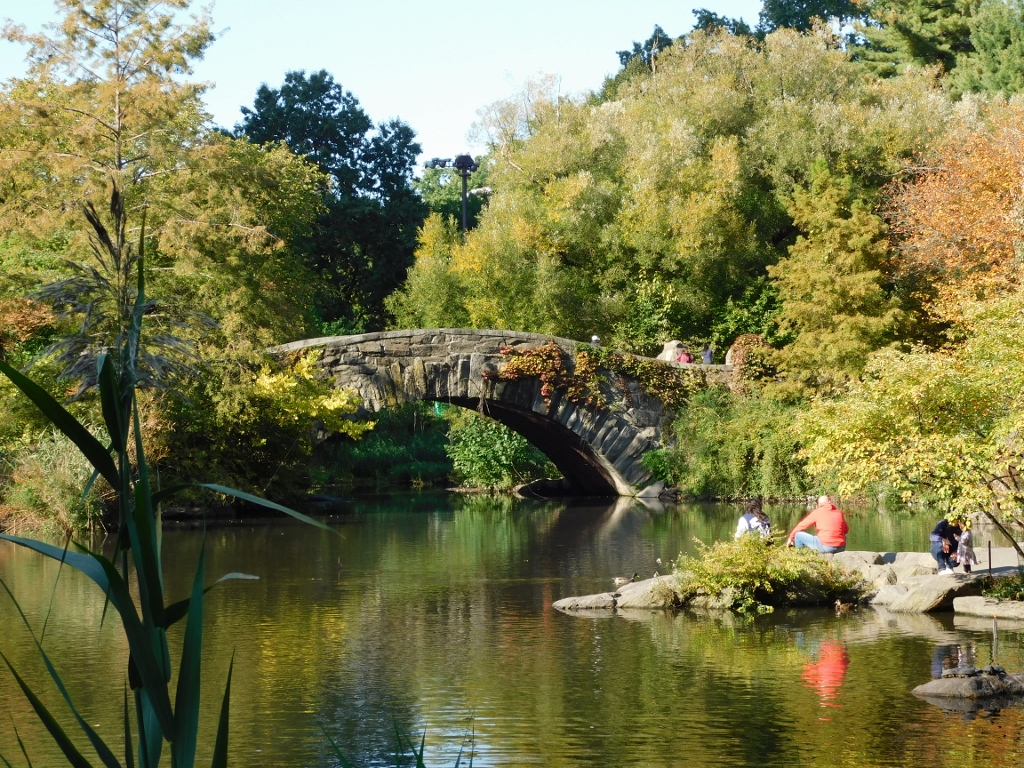 Central Park, a detail
Central Park, a detail
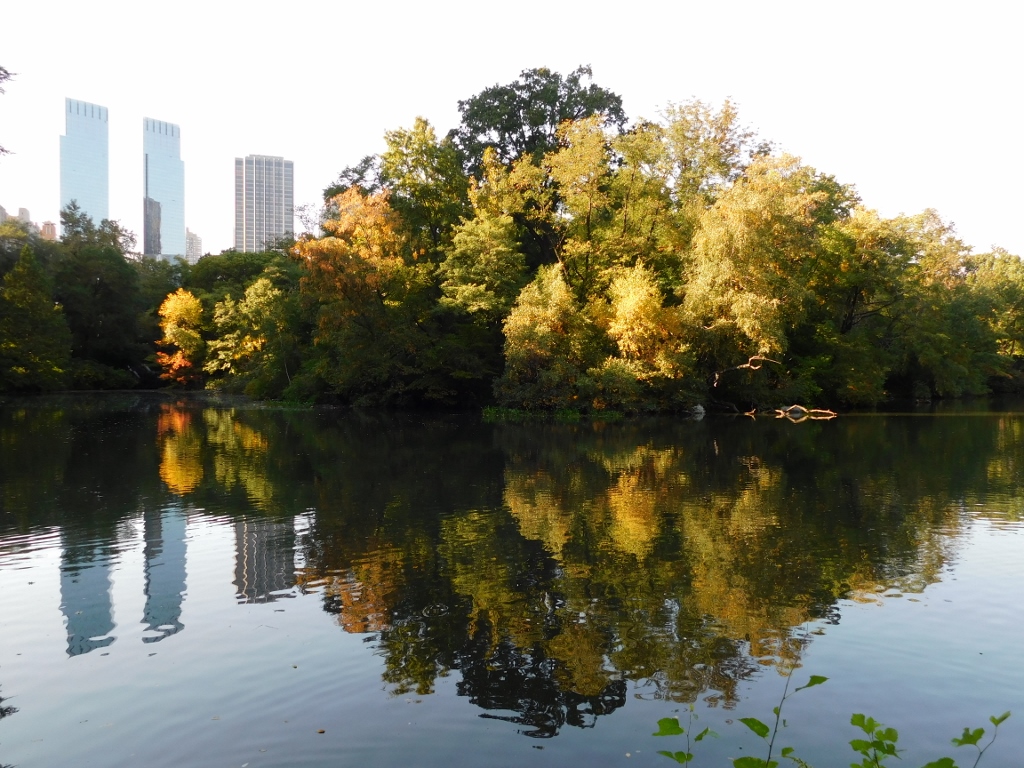 Central Park, a detail
Central Park, a detail
Not far from here, near the southeast corner, I left the park and entered the completely urbanised part of the city.
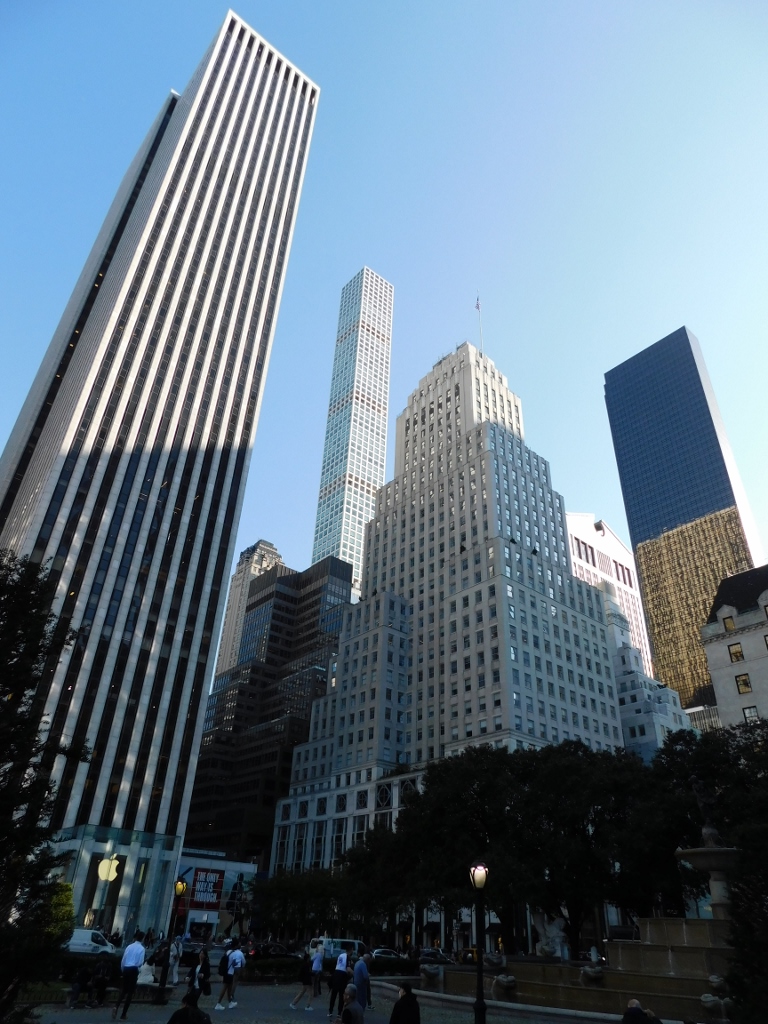 New York, a detail
New York, a detail
At this southeast corner of the park, there is a square called the Grand Army Plaza. In the south section of the square there is Pulitzer Fountain and there is also the famous Plaza Hotel.
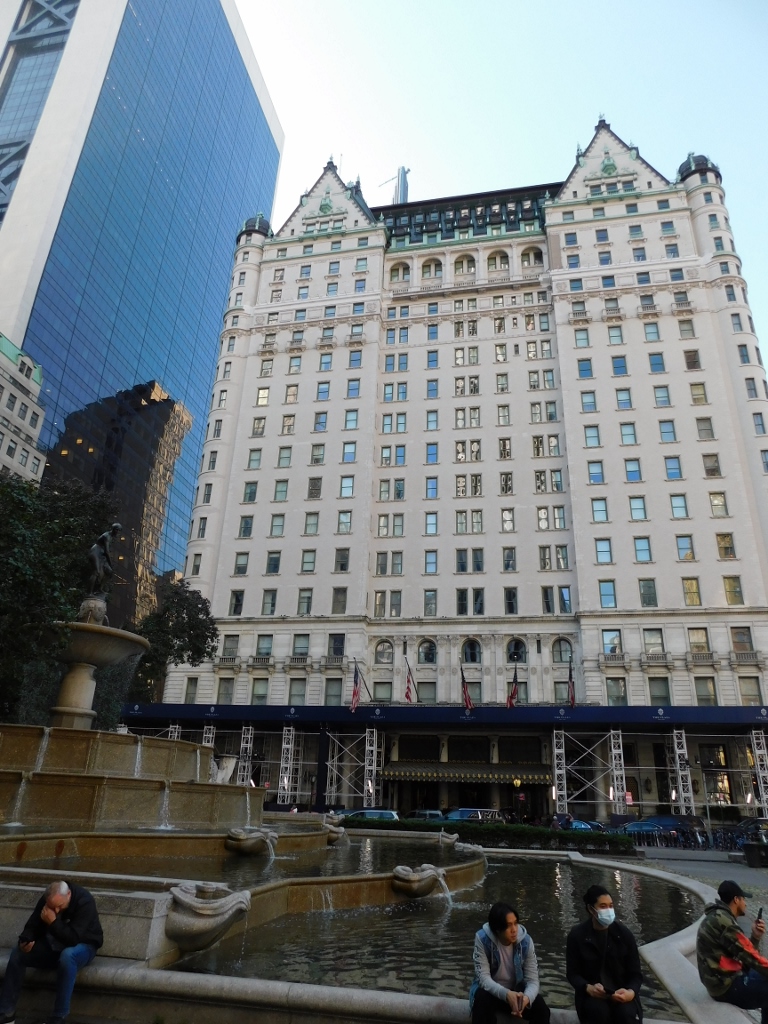 The Plaza Hotel and Pulitzer Fountain
The Plaza Hotel and Pulitzer Fountain
A couple of hundred metres further, on the Fifth Avenue, there is Trump Tower built in 1983 by Donald Trump who later became the US president. The building hosts the seat of his company and he also officially resides here with his family.
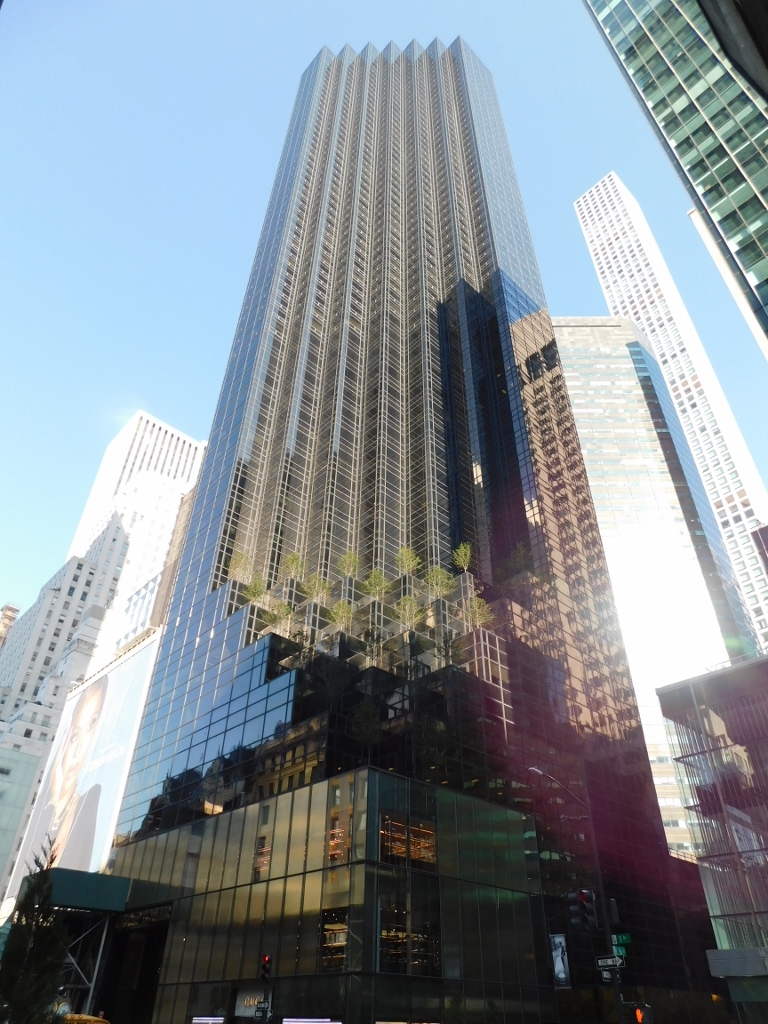 Trump Tower
Trump Tower
I did not go further down the Fifth Avenue, but rather I went to the 6th Avenue and then I walked there for a while before moving to the 7th Avenue and the famous Times Square.
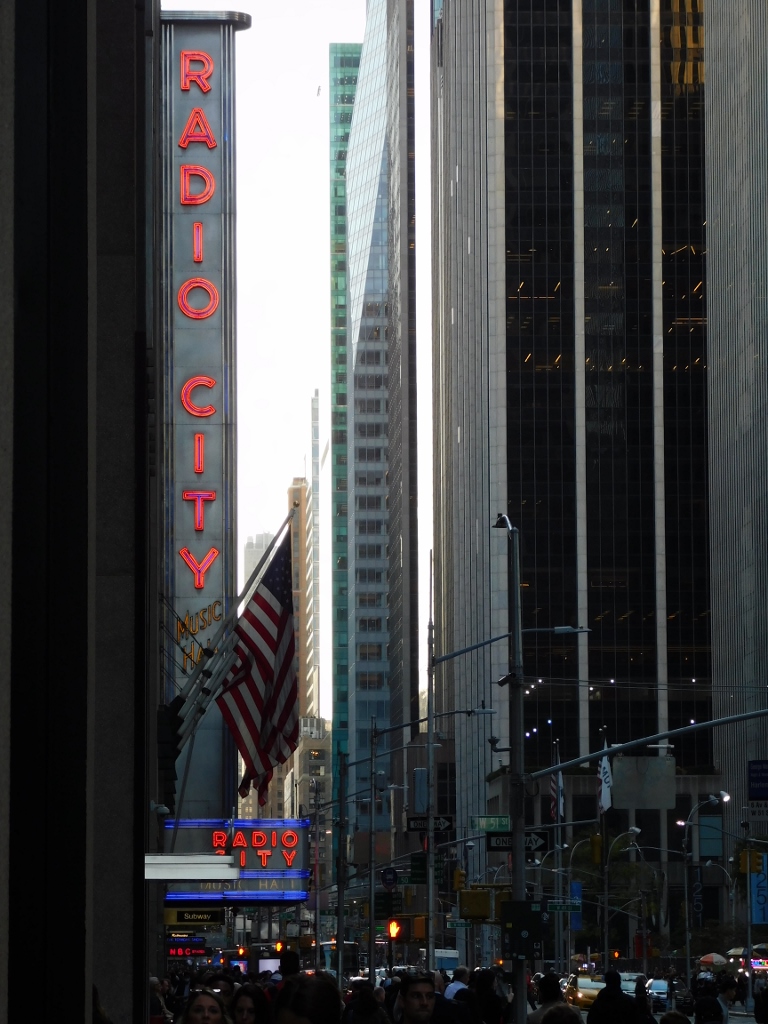 New York, a detail
New York, a detail
The Times Square is located at the crossroad of the Broadway and the 7th Avenue, between the 42nd and 47th Streets.
 Times Square
Times Square
This is the area of a complex crossroad that is most famous for its numerous large and dazzling advertisements. Also, since 1907, a public celebration of the New Year is organised on 31 December, with a note that there were breaks in this practice for a few years for different reasons.
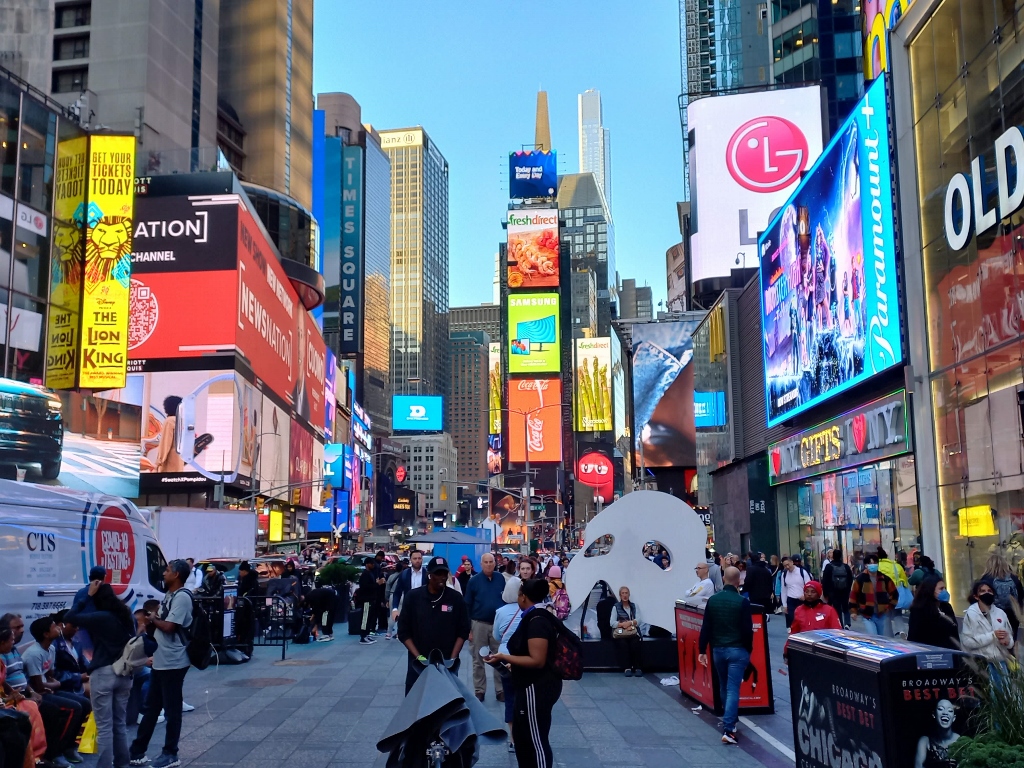 Times Square
Times Square
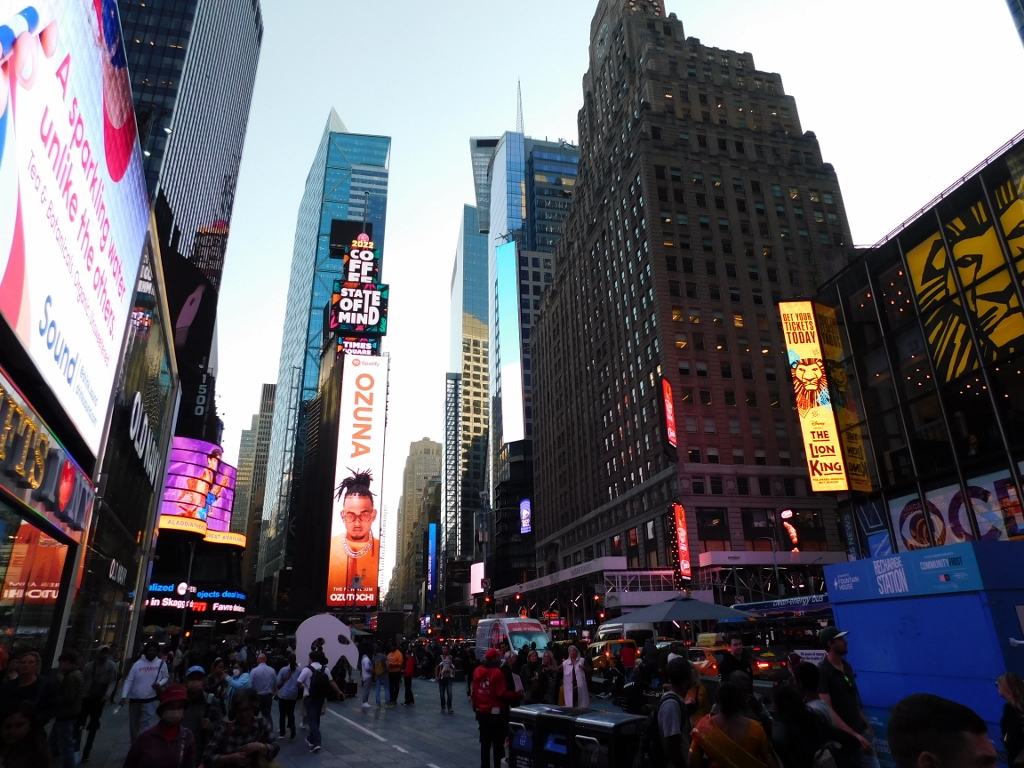 Times Square
Times Square
As the day was getting close to its end, I headed for the nearby Bryant Park that is located on the east side of the 6th Avenue, between the 40th and 42nd Streets.
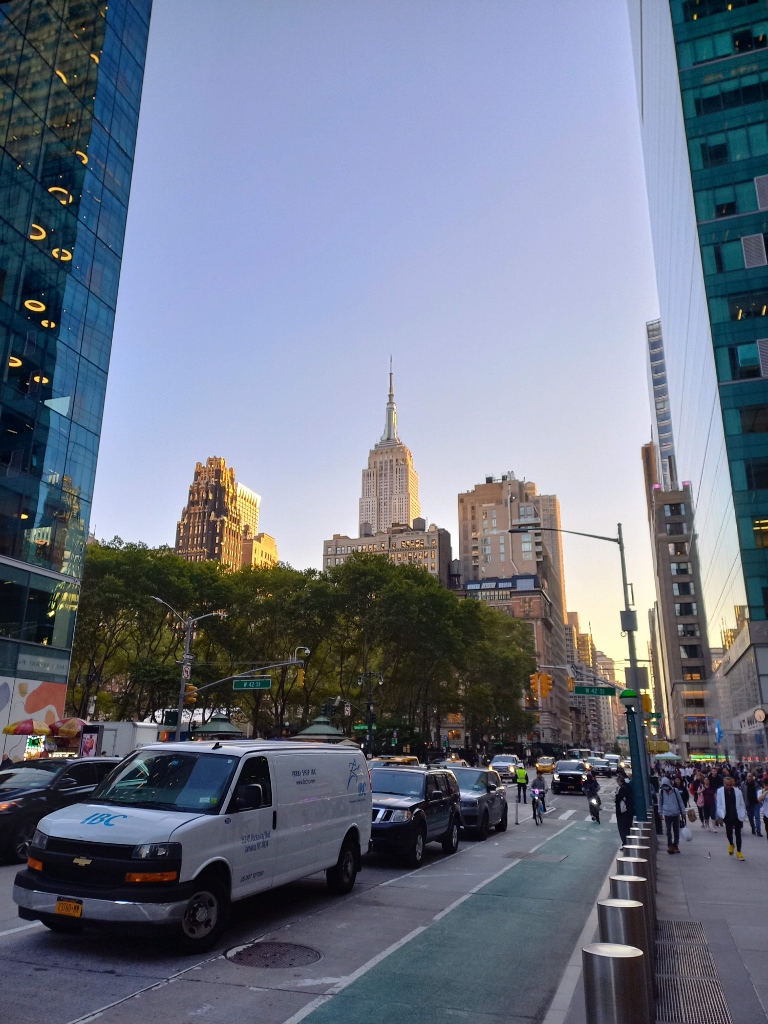 New York, a detail
New York, a detail
While getting close to the park, I could also see the impressive Empire State Building. I have already written about it in: https://www.svudapodji.com/en/new-york-martinique-2/.
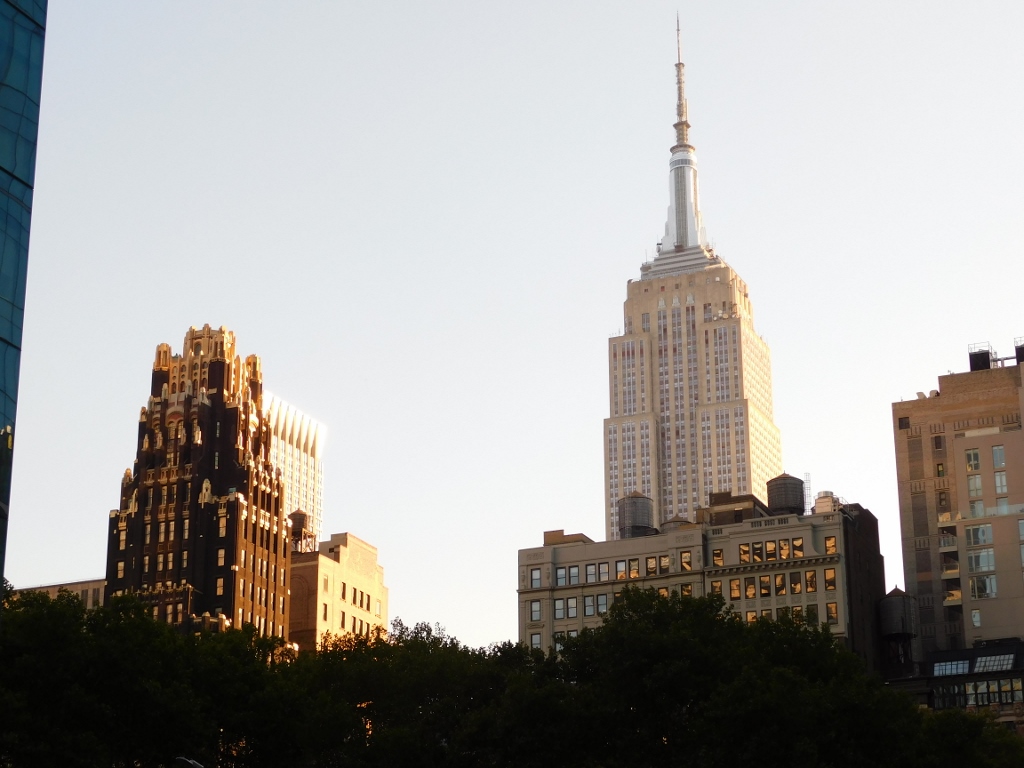 New York, a detail
New York, a detail
Once I reached the park, I walked around a little, taking photos of some of the details, but my main goal was to go to the corner of the 6th Avenue and the 40th Street.
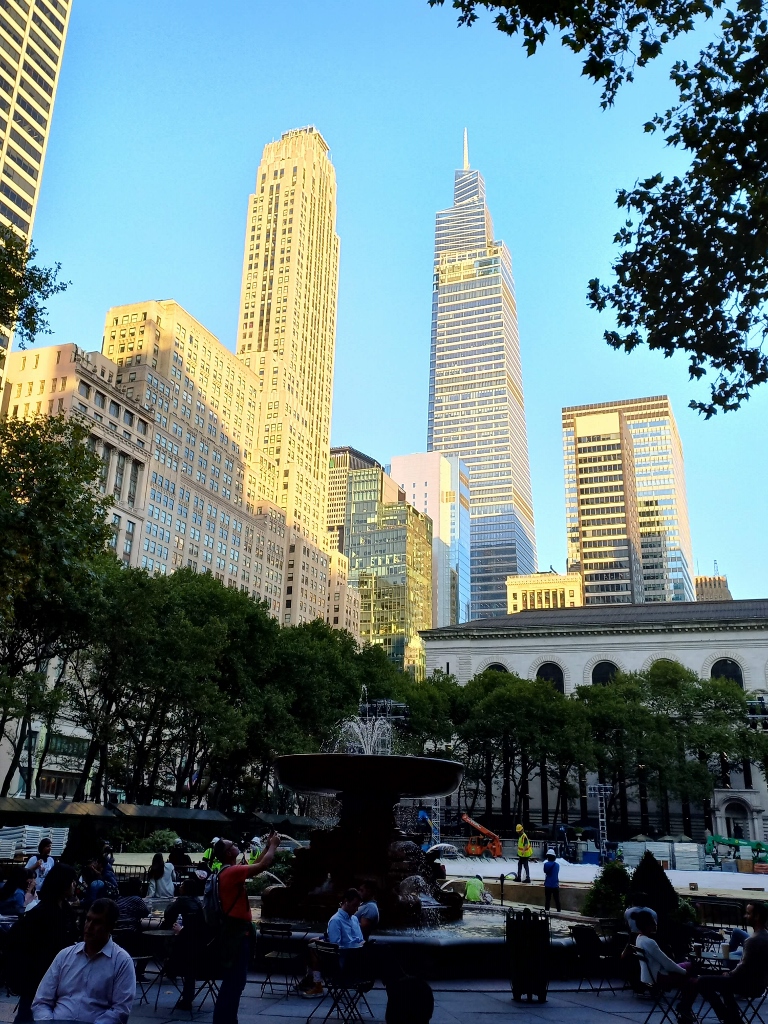 New York, a detail
New York, a detail
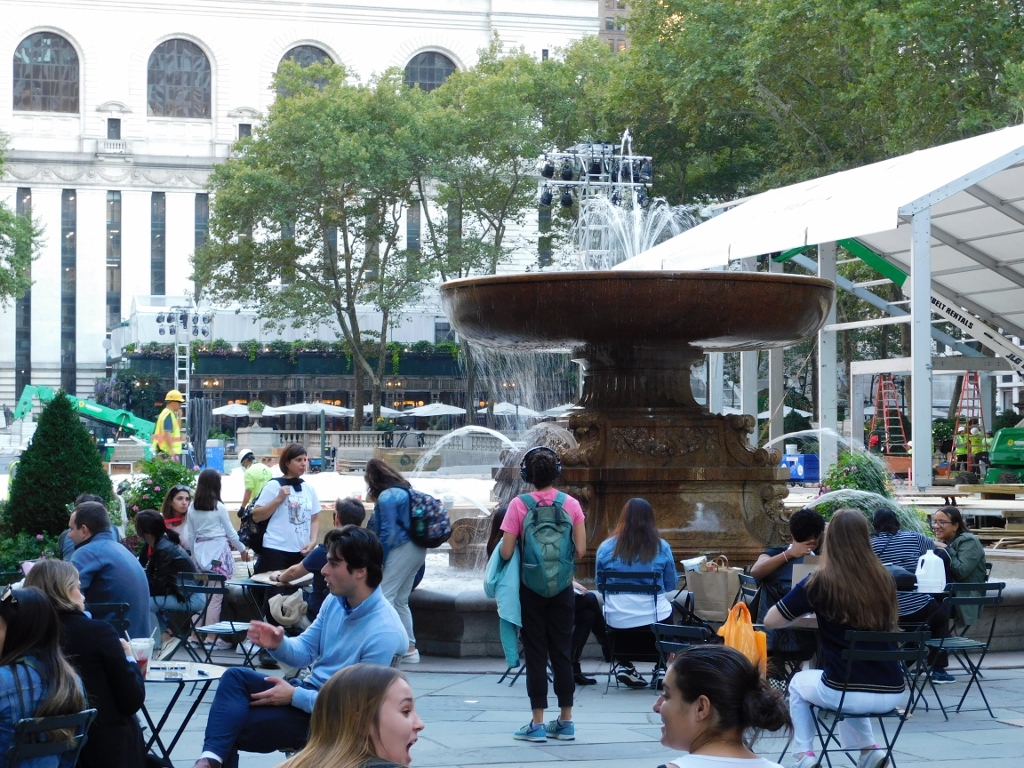 Bryant Park, a detail
Bryant Park, a detail
Namely, this corner has been named after Nikola Tesla – Nikola Tesla Corner – since this famous Serbian-American scientist had the habit of coming to this park and feed pigeons.
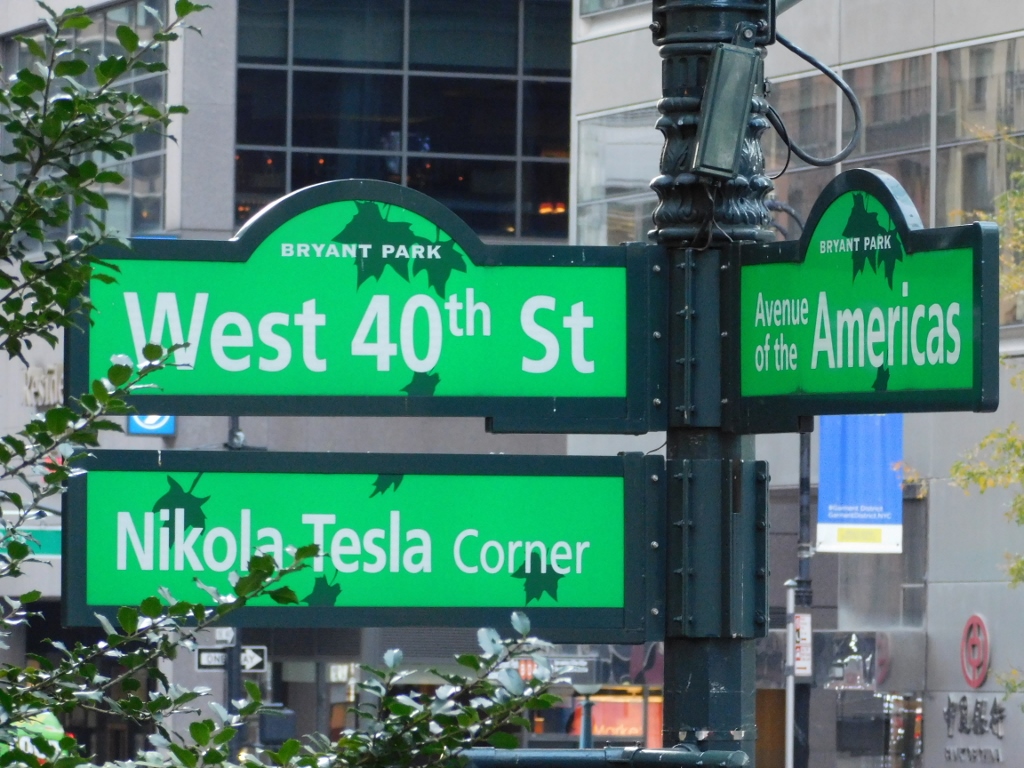 Nikola Tesla Corner
Nikola Tesla Corner
After this I just returned to the 42nd Street where I went down to the underground, since this was a very long day and I was already quite tired from all the walking, plus I had to go back to my New York home.
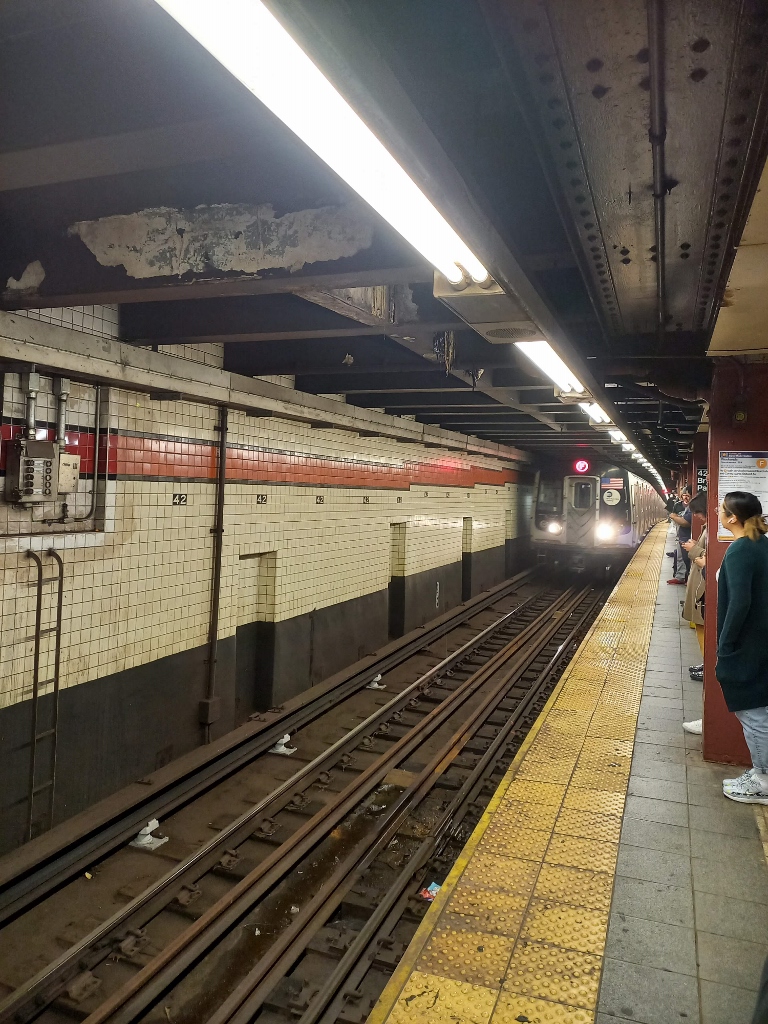 New York, a detail
New York, a detail